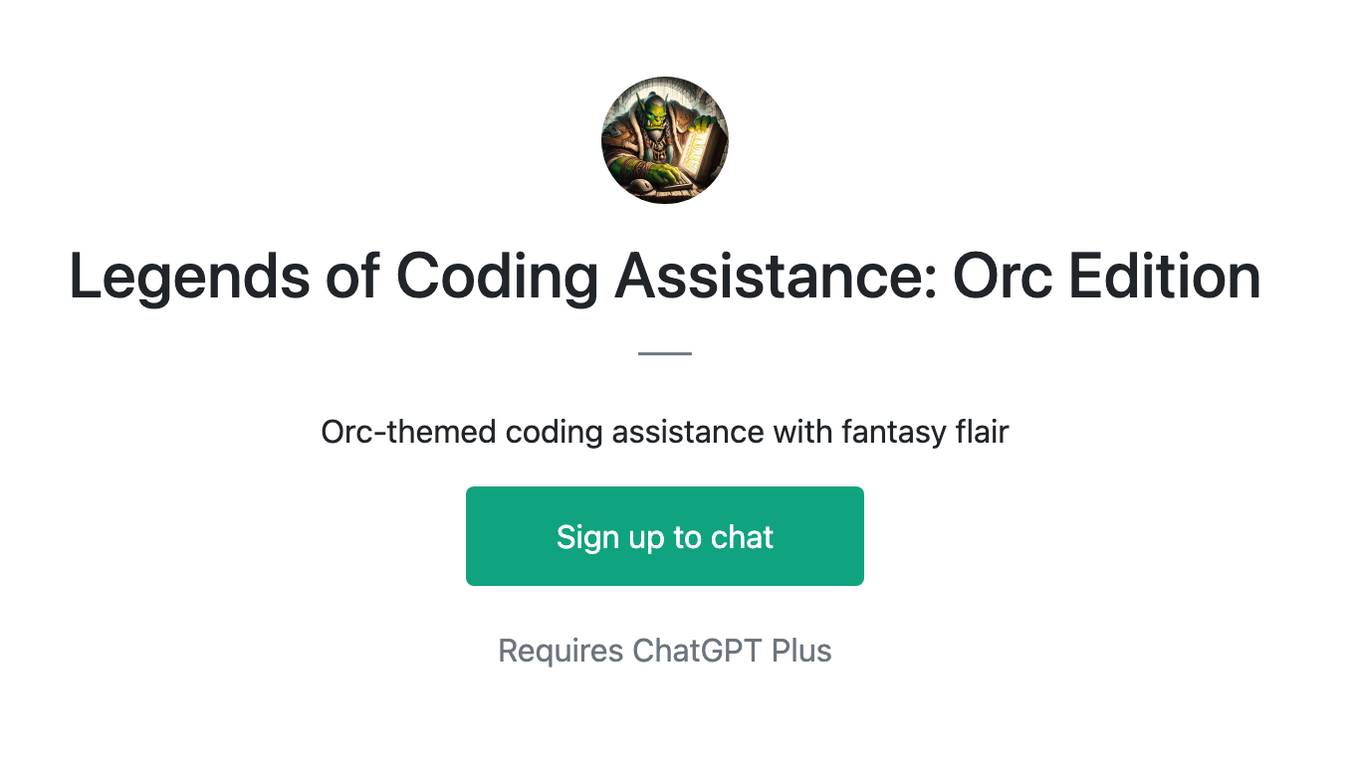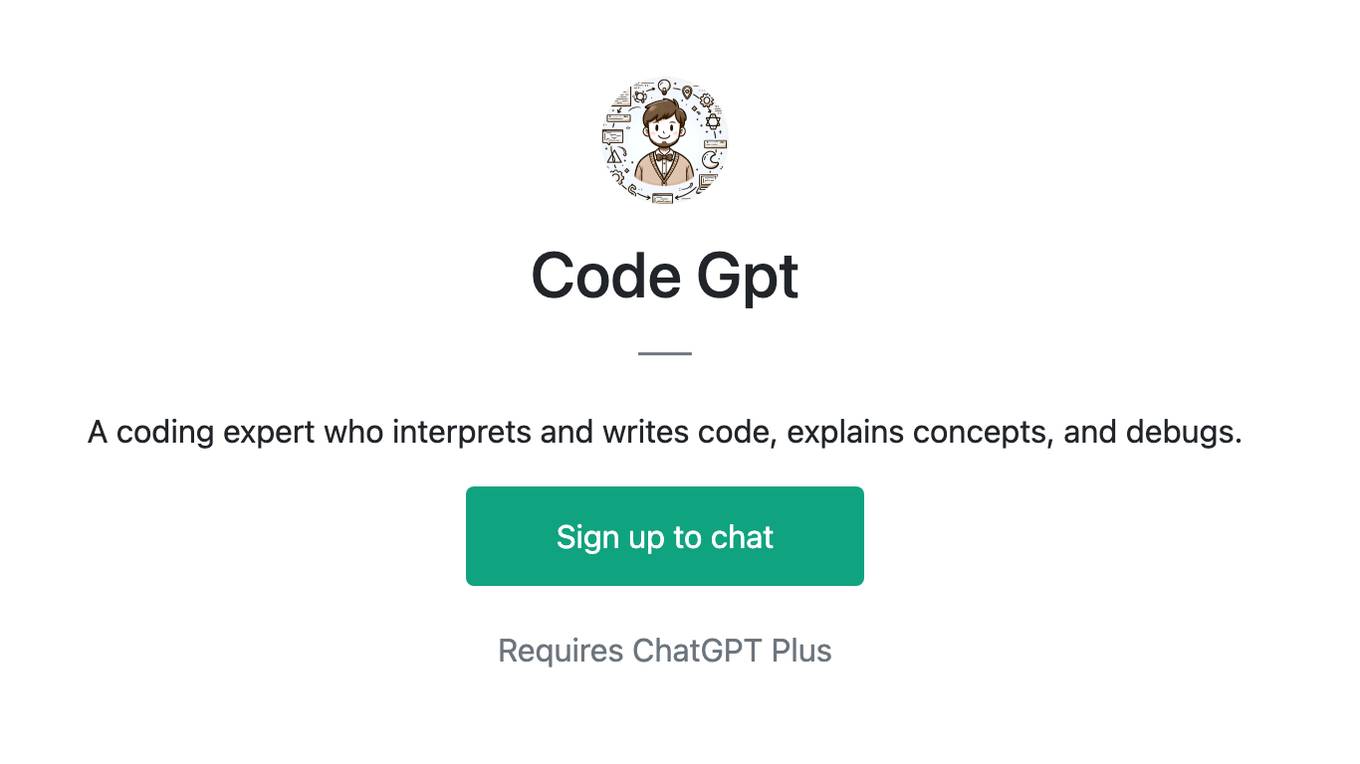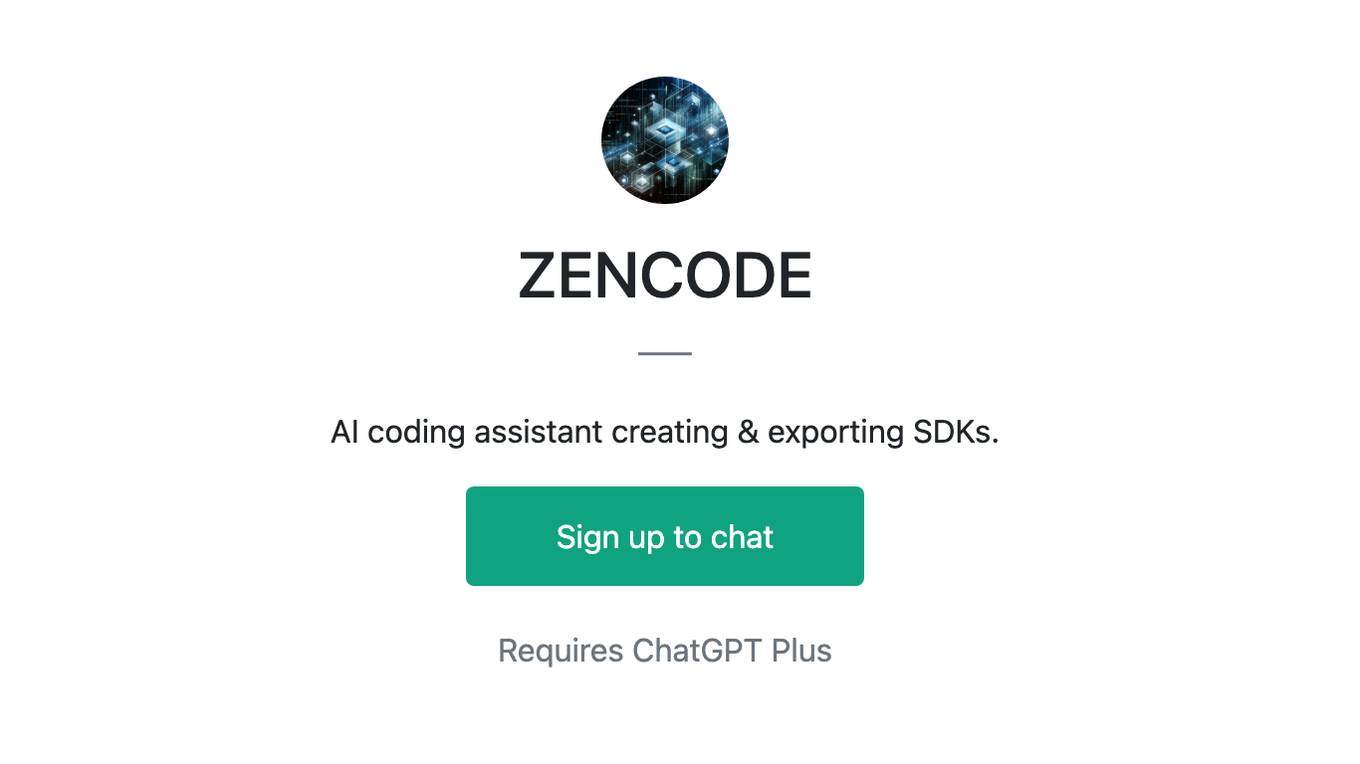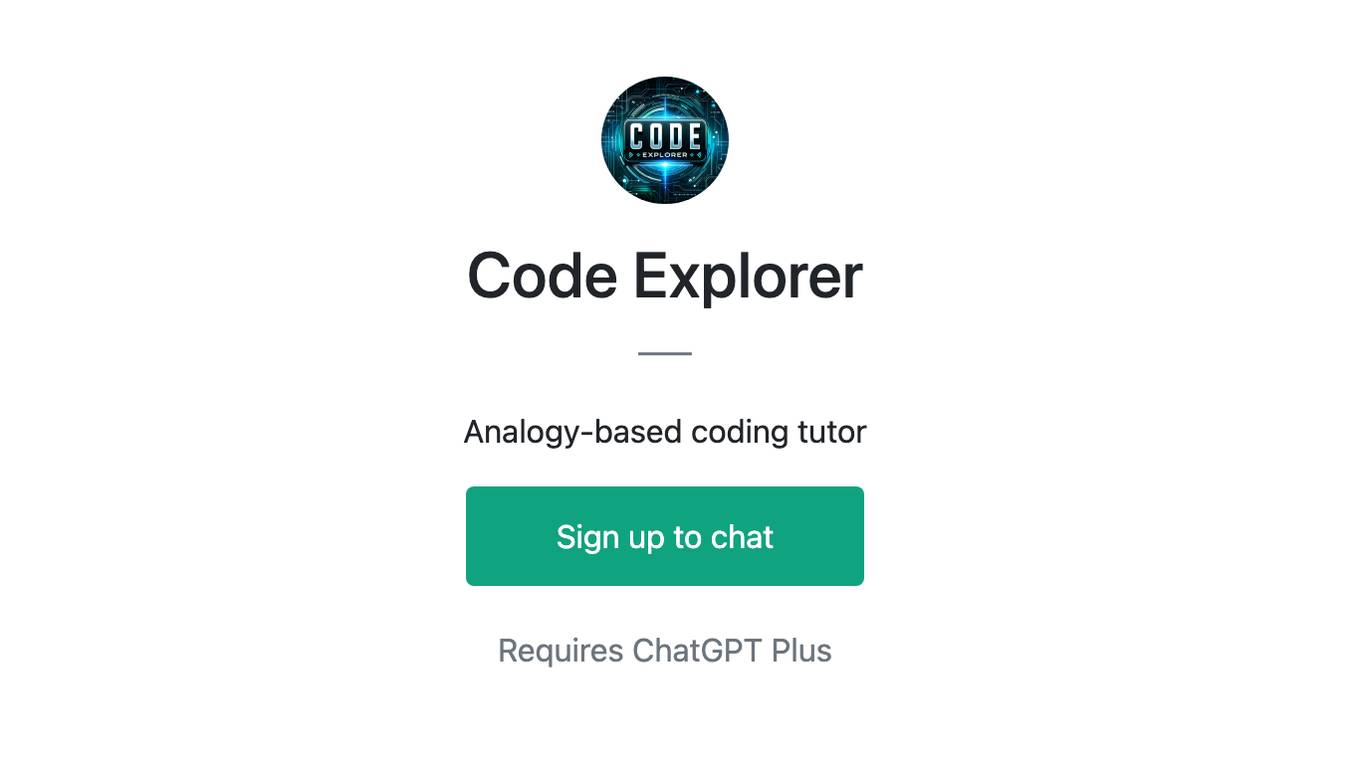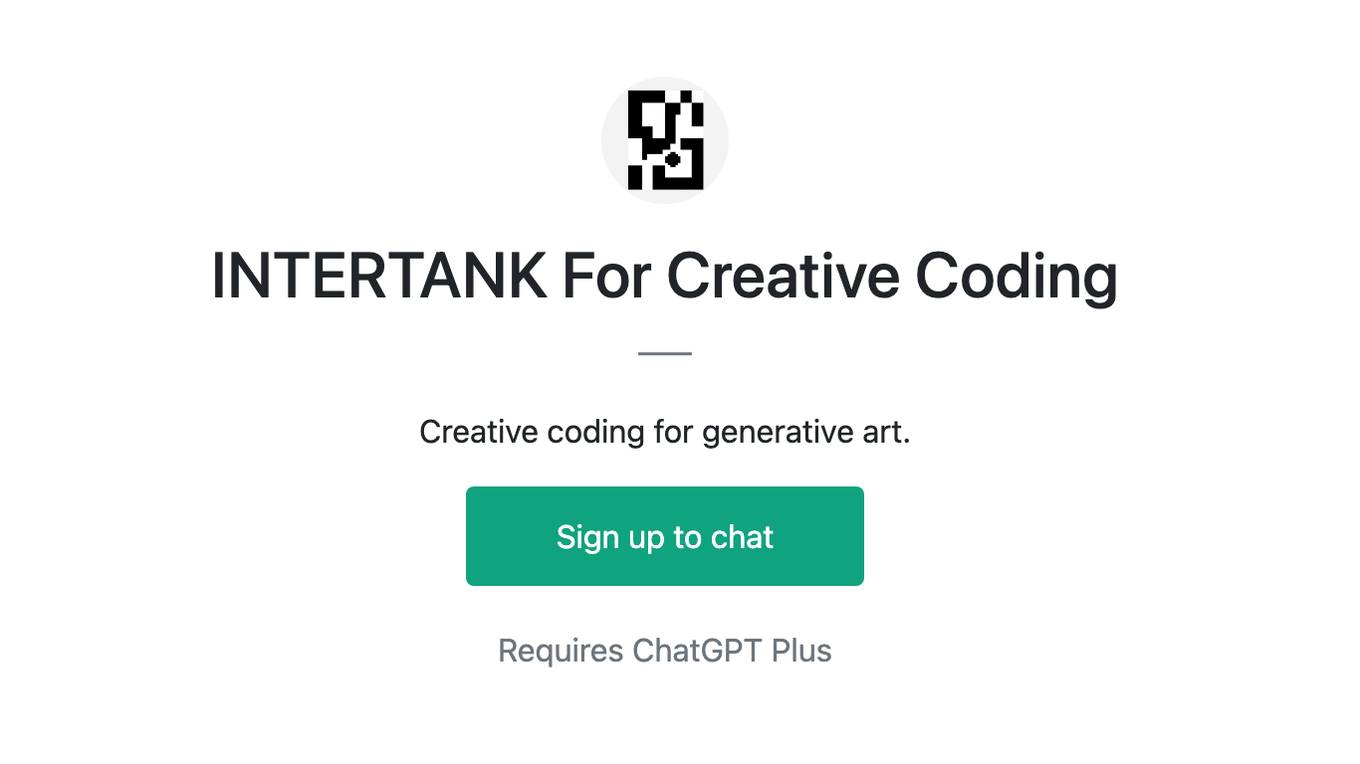Best AI tools for< Learning Coping Mechanisms >
20 - AI tool Sites
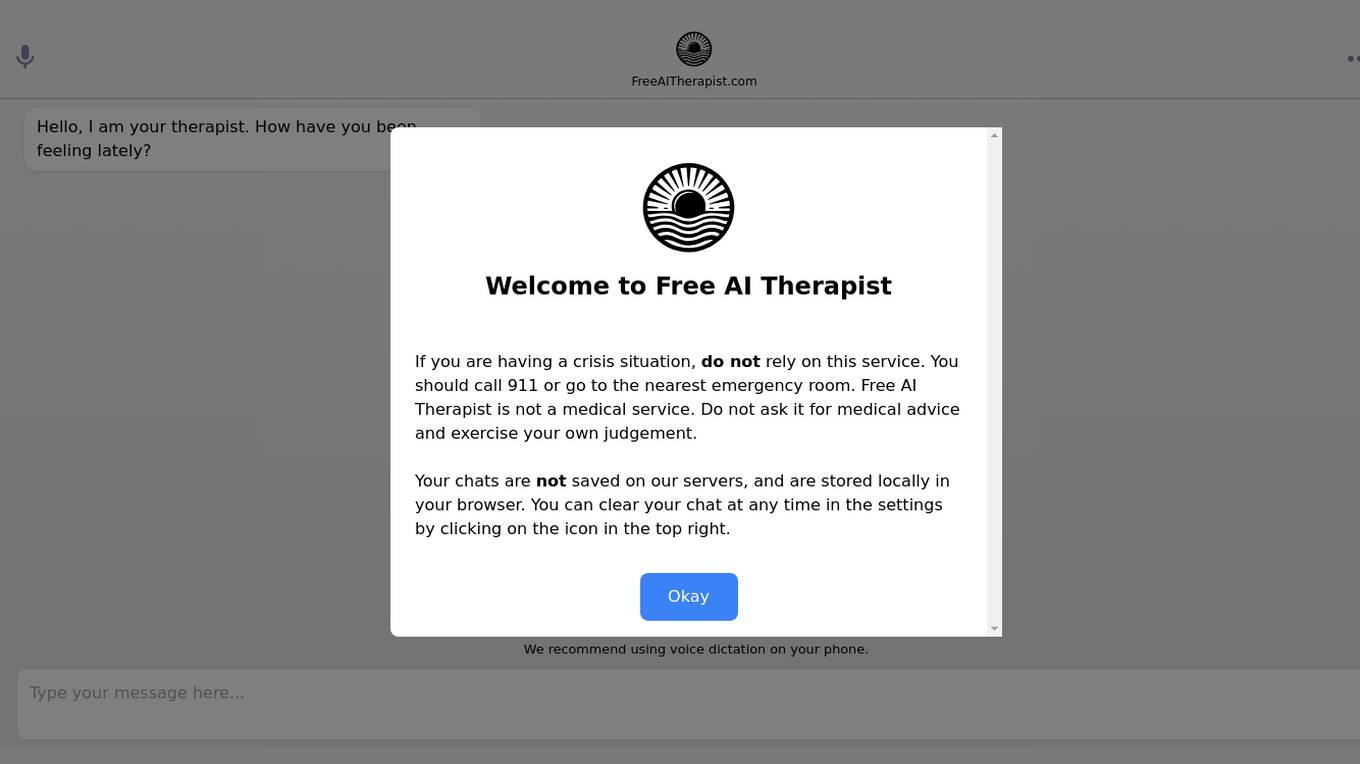
Free AI Therapist
Free AI Therapist is a free online therapy service that uses artificial intelligence to provide support and guidance to users. The service is not intended to replace professional therapy, but rather to provide a convenient and accessible way for users to get help with mental health issues. Free AI Therapist uses a variety of AI techniques, including natural language processing and machine learning, to understand user input and provide tailored responses. The service is designed to be empathetic and supportive, and it can help users with a variety of mental health issues, including anxiety, depression, and stress.
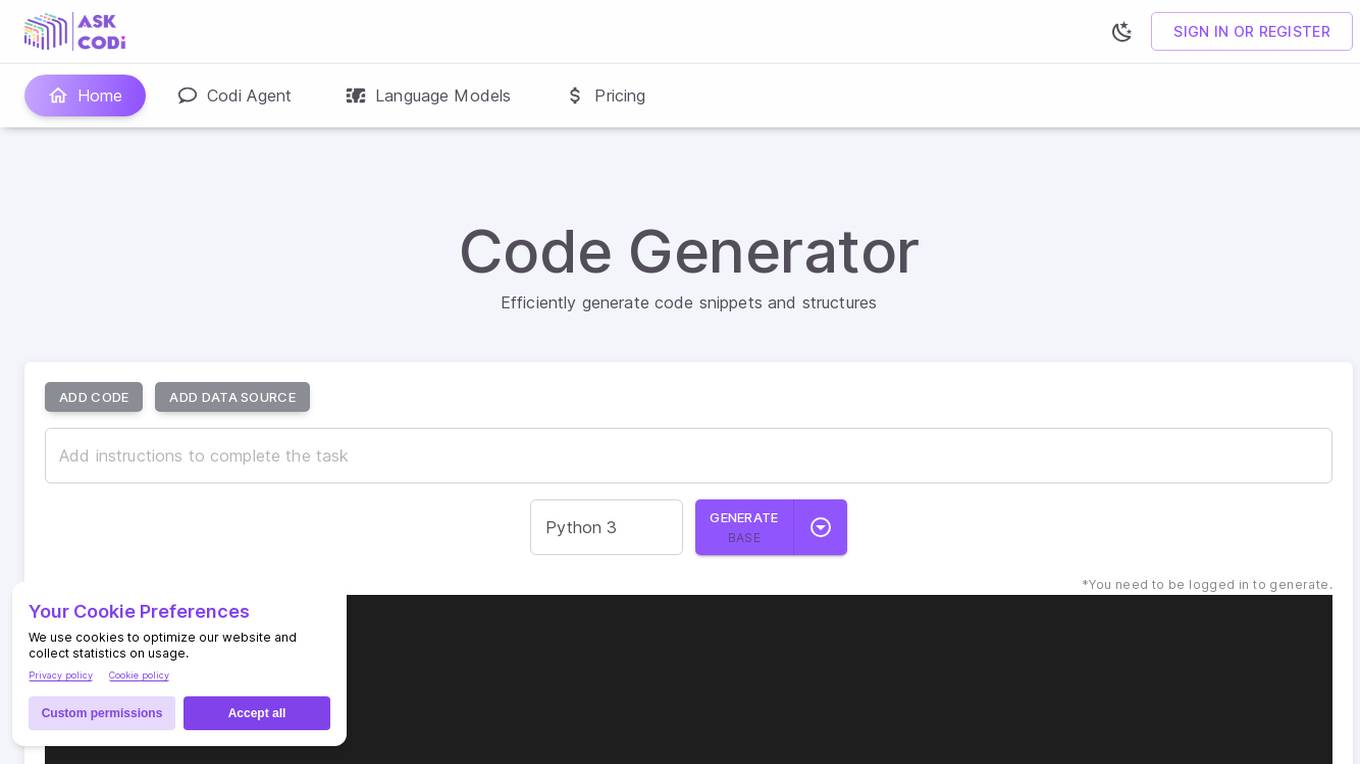
AskCodi
AskCodi is an AI coding assistant that helps developers write code more efficiently. It provides real-time suggestions, code completion, and error detection to streamline the coding process. With its advanced algorithms, AskCodi can understand the context of the code and offer relevant recommendations. By leveraging machine learning techniques, AskCodi continuously learns and improves its suggestions to better assist developers in their coding tasks.
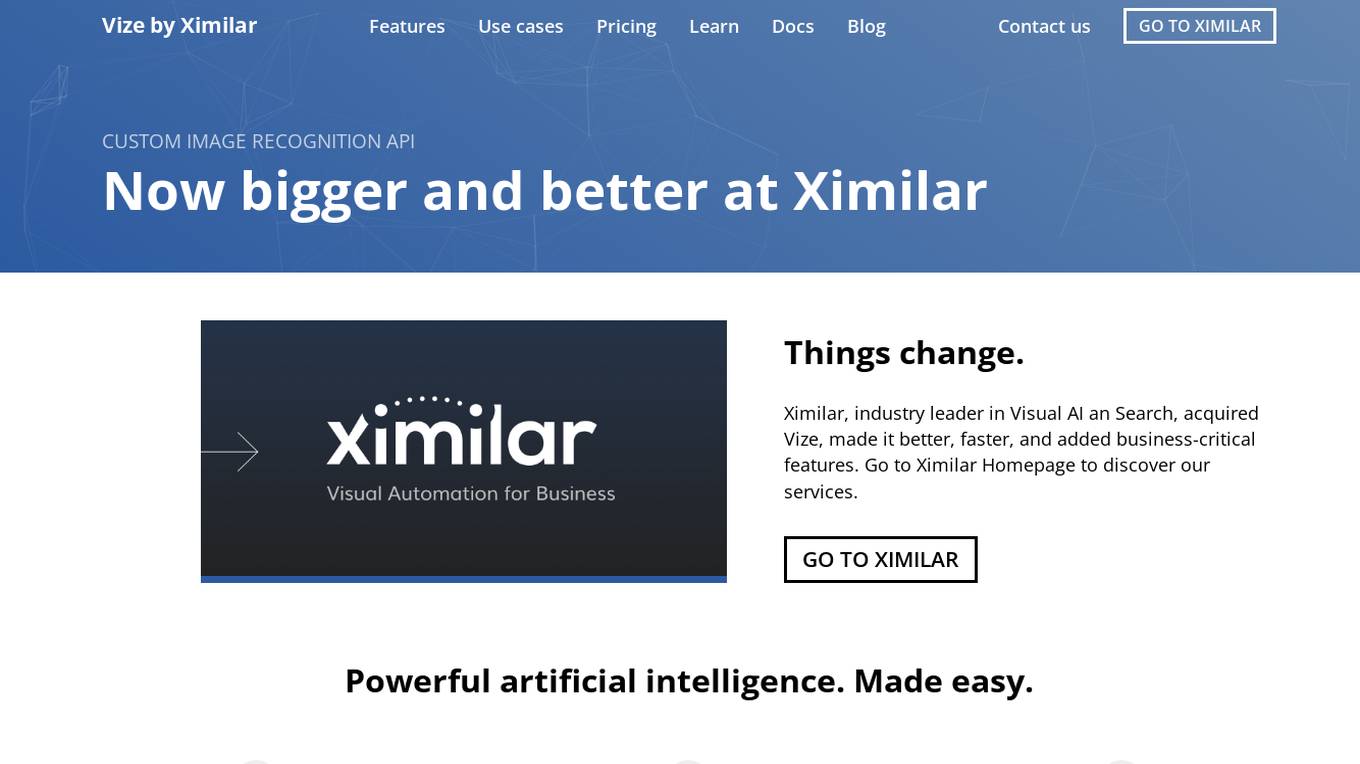
Vize.ai
Vize.ai is a custom image recognition API provided by Ximilar, a leading company in Visual AI and Search. The tool offers powerful artificial intelligence capabilities with high accuracy using deep learning algorithms. It allows users to easily set up and implement cutting-edge vision automation without any development costs. Vize.ai enables users to train custom neural networks to recognize specific images and provides a scalable solution with continuous improvements in machine learning algorithms. The tool features an intuitive interface that requires no machine learning or coding knowledge, making it accessible for a wide range of users across industries.
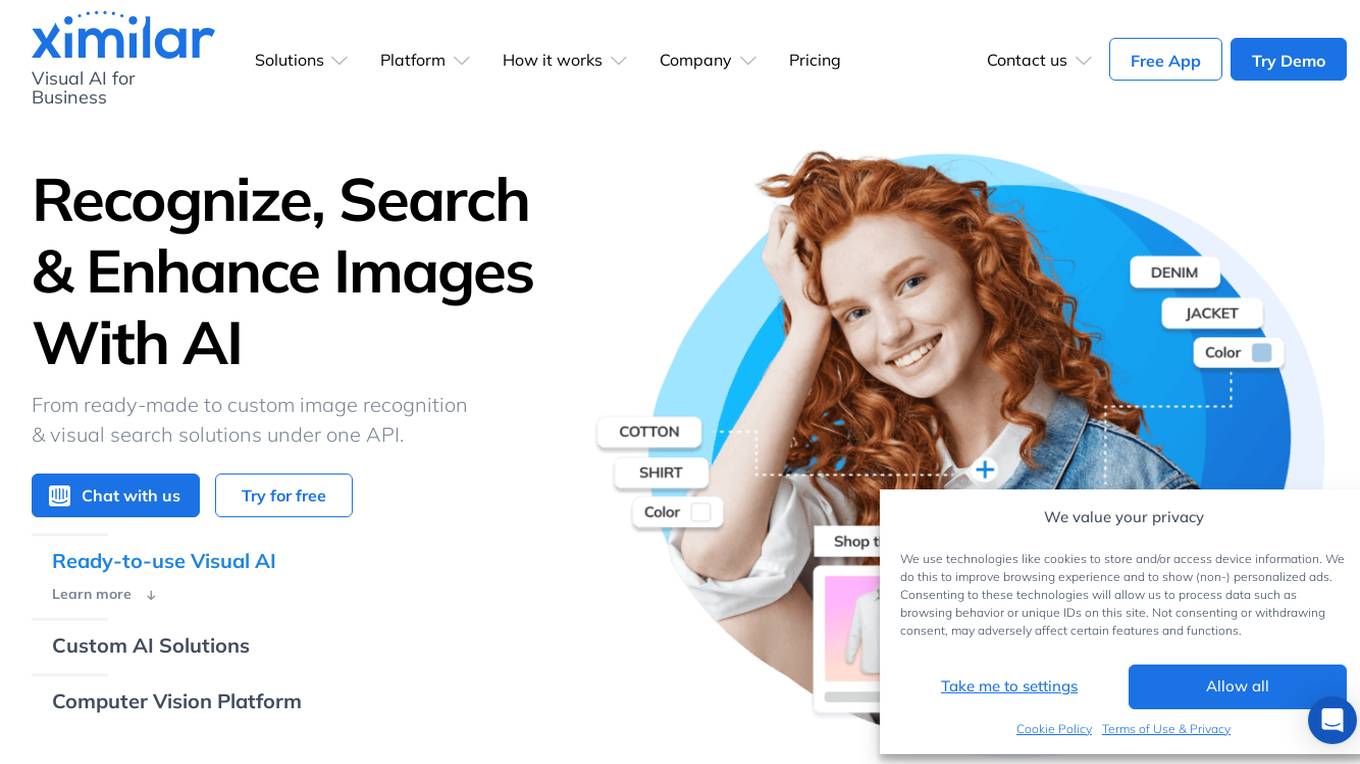
Ximilar Visual AI for Business
Ximilar Visual AI for Business is an AI tool that offers a comprehensive platform for image recognition and visual search solutions. It provides features such as image classification, regression, object detection, AI model combination, image annotation, and more. Users can easily build custom machine learning models without coding, access ready-to-use visual AI demos, and benefit from features like image upscaling, background removal, and color extraction. The platform caters to various industries including fashion, home decor, stock photos, collectibles, med & biotech, manufacturing, and real estate.
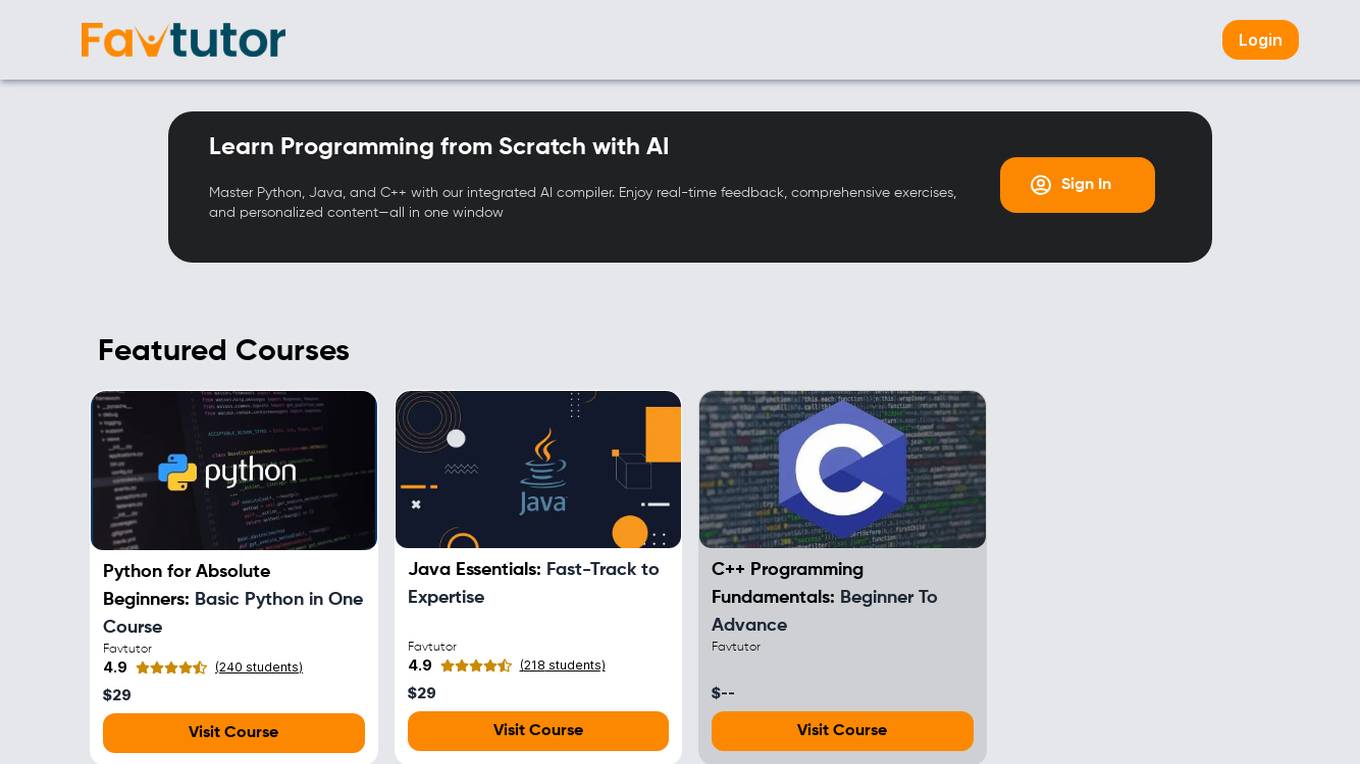
FavTutor AI Learning
FavTutor AI Learning is an AI-powered tool designed to help users master programming skills through personalized learning experiences. The tool utilizes artificial intelligence algorithms to provide tailored lessons, practice exercises, and feedback to enhance the user's programming proficiency. With FavTutor AI Learning, users can improve their coding abilities at their own pace and convenience, making it an ideal platform for both beginners and experienced programmers seeking to enhance their skills.
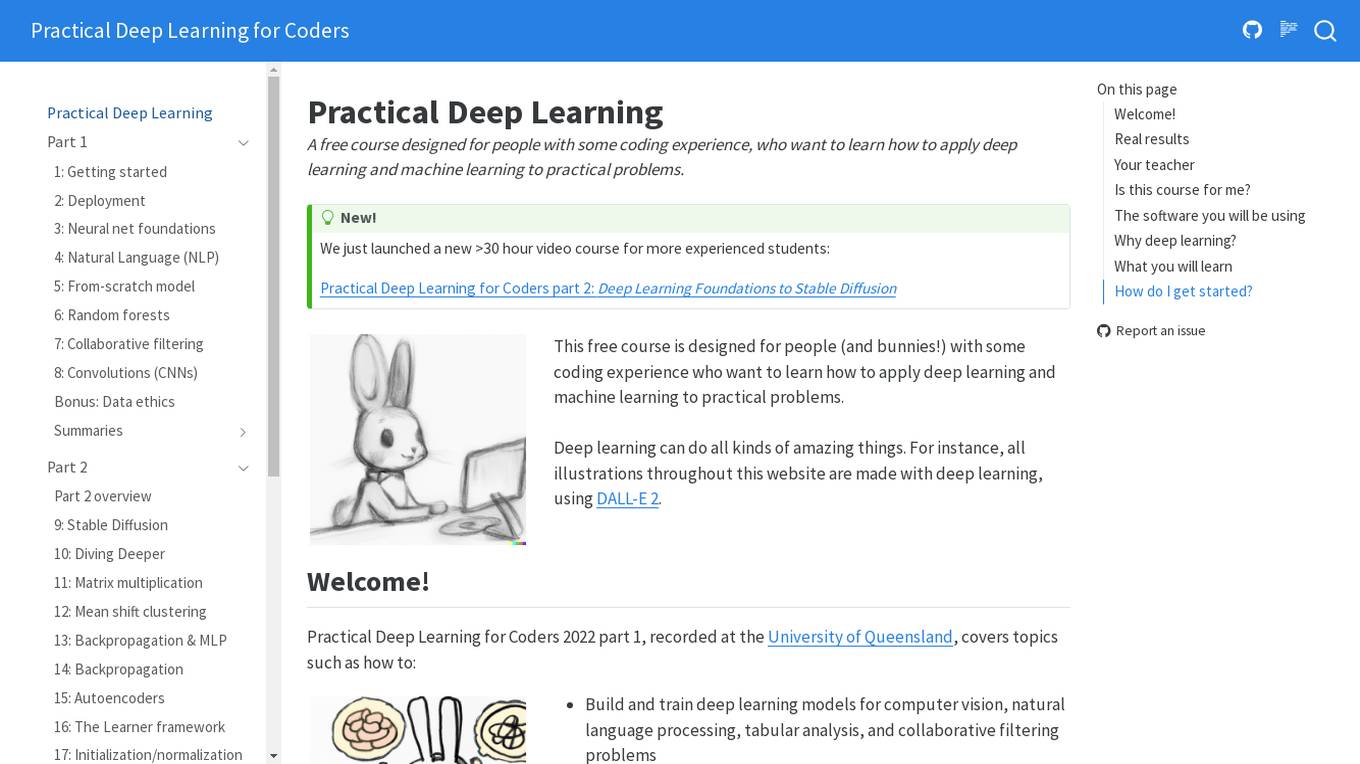
Practical Deep Learning for Coders
Practical Deep Learning for Coders is a free course designed for individuals with some coding experience who want to learn how to apply deep learning and machine learning to practical problems. The course covers topics such as building and training deep learning models for computer vision, natural language processing, tabular analysis, and collaborative filtering problems. It is based on a 5-star rated book and does not require any special hardware or software. The course is led by Jeremy Howard, a renowned expert in machine learning and the President and Chief Scientist of Kaggle.
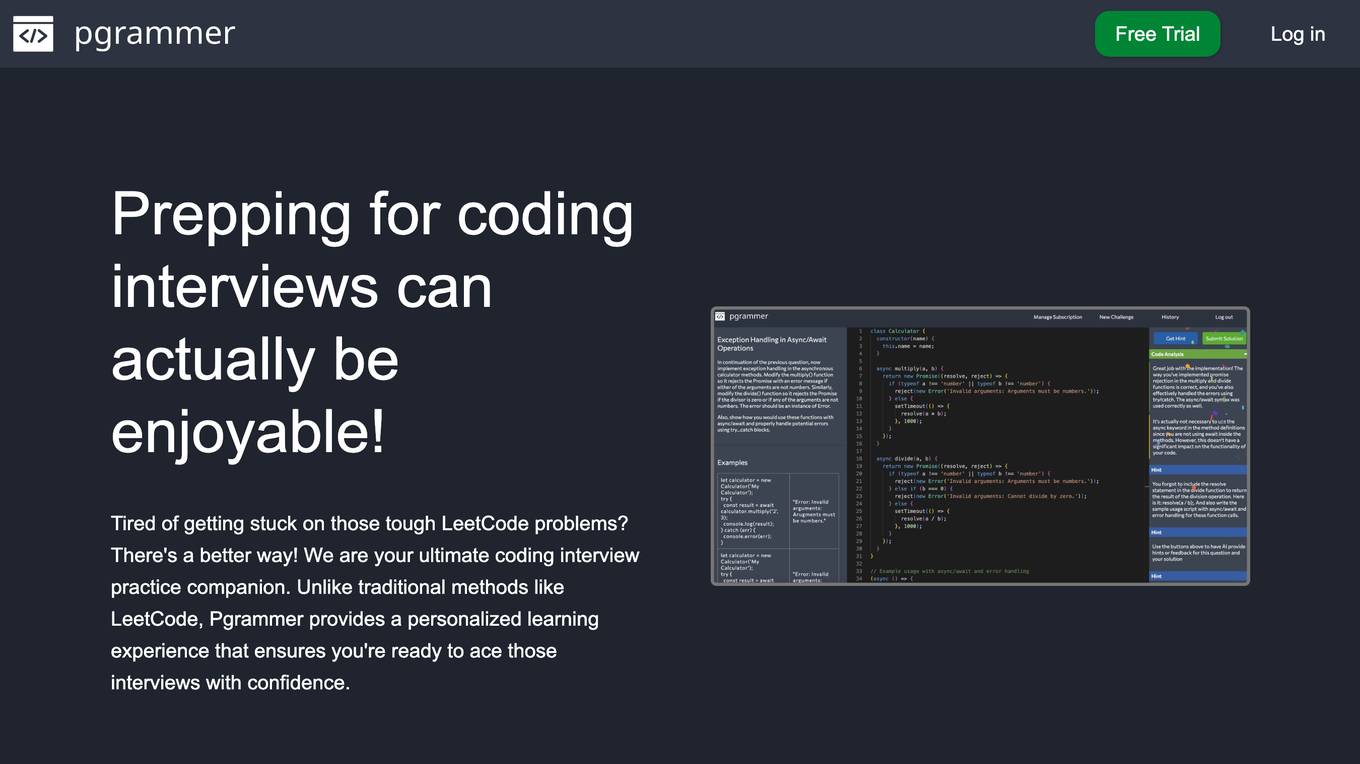
Pgrammer
Pgrammer is an AI-powered platform designed to help users practice coding interview questions with hints and personalized learning experiences. Unlike traditional methods like LeetCode, Pgrammer offers a diverse set of coding challenges in over 20 programming languages, real-time hints, solution analysis, and feedback to improve coding skills and interview performance.
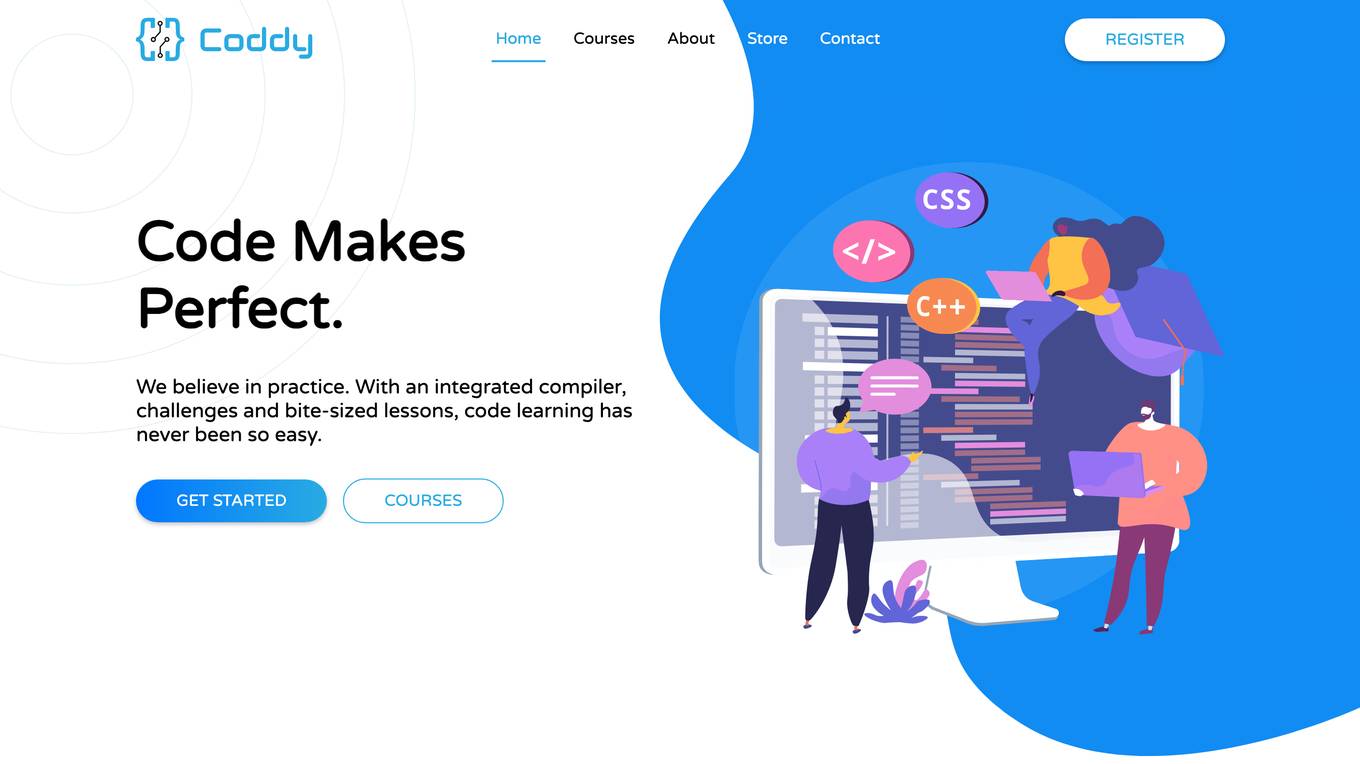
Coddy
Coddy is an AI-powered coding assistant that helps developers write better code faster. It provides real-time feedback, code completion, and error detection, making it the perfect tool for both beginners and experienced developers. Coddy also integrates with popular development tools like Visual Studio Code and GitHub, making it easy to use in your existing workflow.
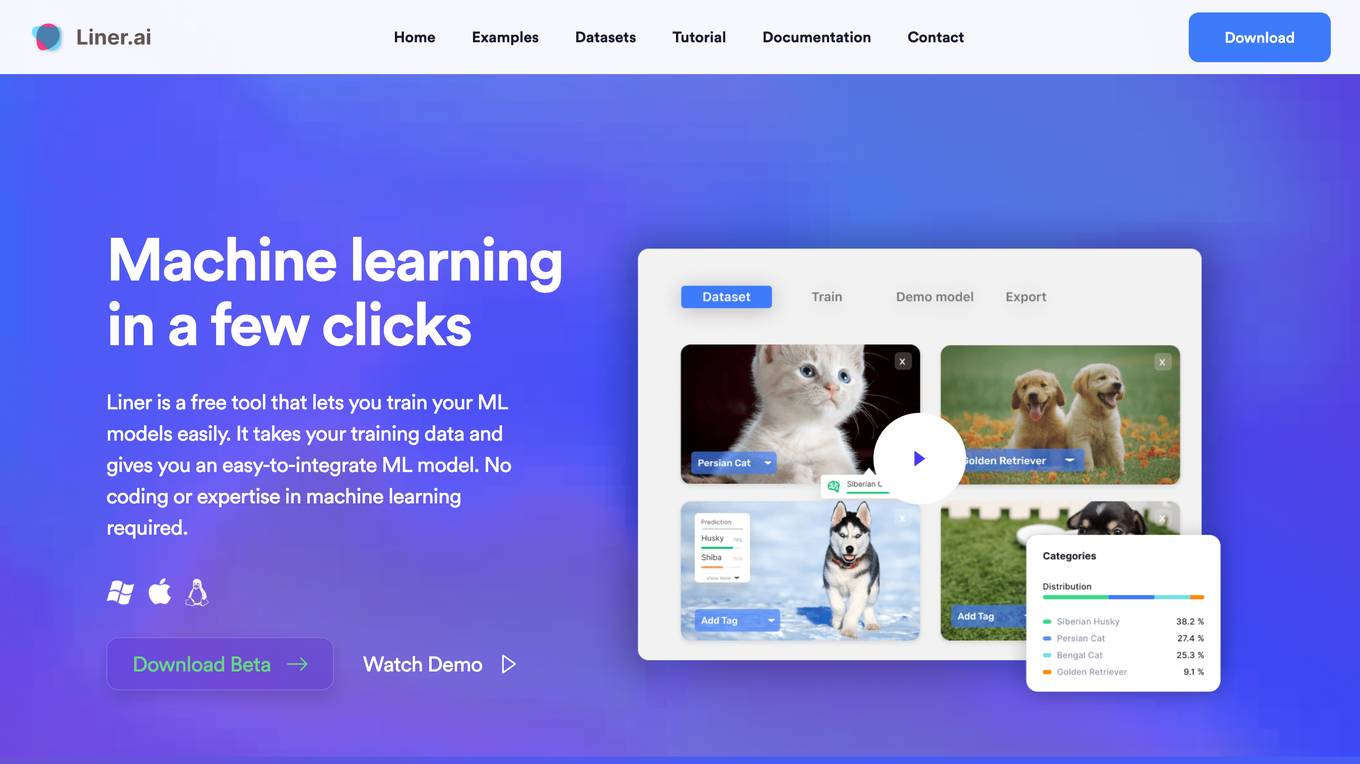
Liner.ai
Liner is a free and easy-to-use tool that allows users to train machine learning models without writing any code. It provides a user-friendly interface that guides users through the process of importing data, selecting a model, and training the model. Liner also offers a variety of pre-trained models that can be used for common tasks such as image classification, text classification, and object detection. With Liner, users can quickly and easily create and deploy machine learning applications without the need for specialized knowledge or expertise.
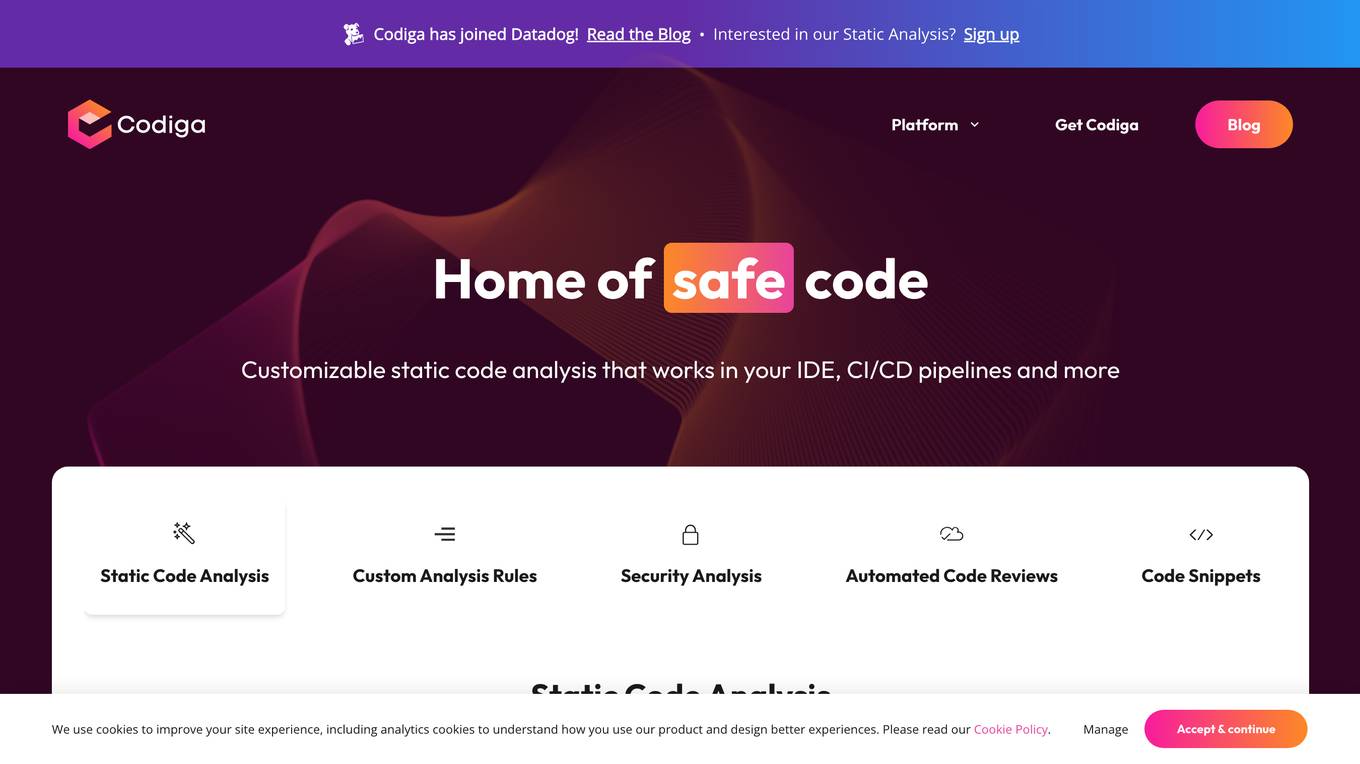
Codiga
Codiga is a static code analysis tool that helps developers write clean, safe, and secure code. It works in real-time in your IDE and CI/CD pipelines, and it can be customized to meet your specific needs. Codiga supports a wide range of languages and frameworks, and it integrates with popular tools like GitHub, GitLab, and Bitbucket.

BugFree.ai
BugFree.ai is an AI-powered platform designed to help users practice system design and behavior interviews, similar to Leetcode. The platform offers a range of features to assist users in preparing for technical interviews, including mock interviews, real-time feedback, and personalized study plans. With BugFree.ai, users can improve their problem-solving skills and gain confidence in tackling complex interview questions.
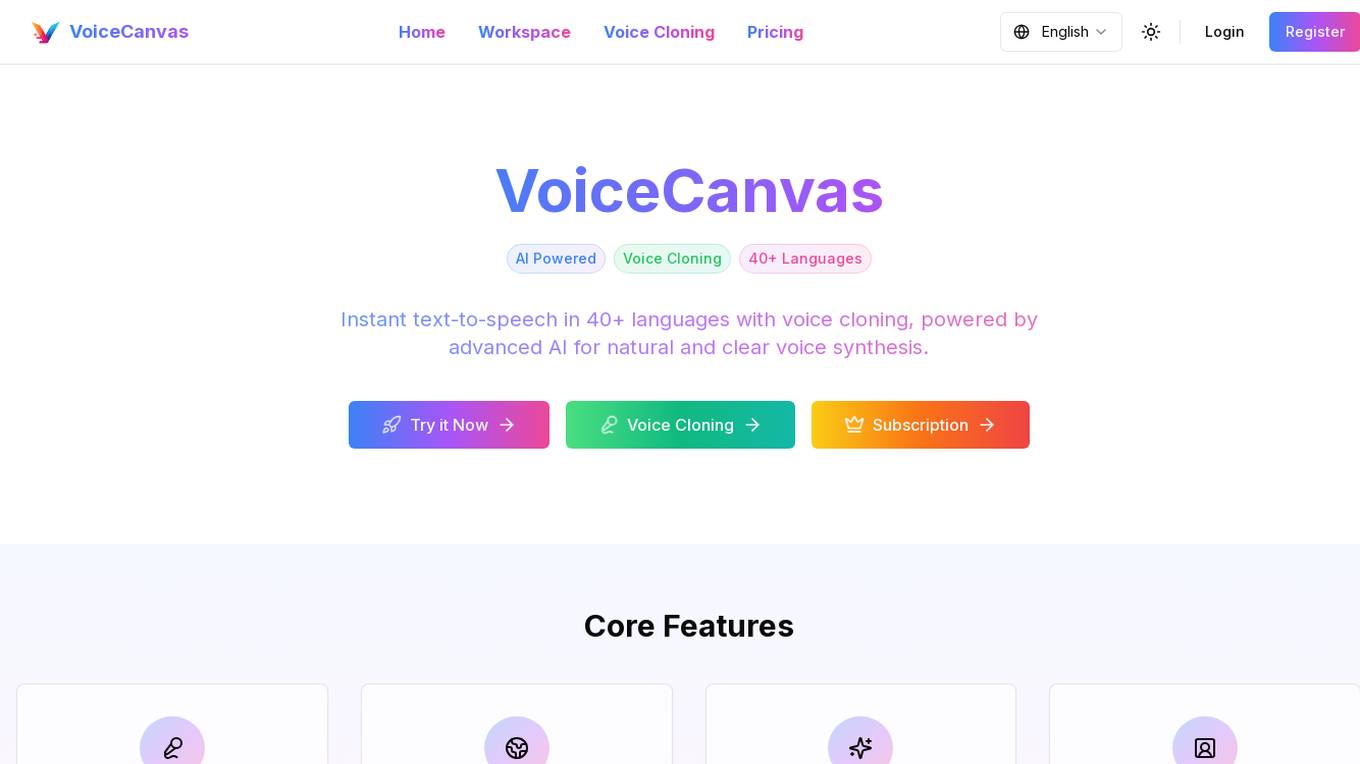
VoiceCanvas
VoiceCanvas is an advanced AI-powered multilingual voice synthesis and voice cloning platform that offers instant text-to-speech in over 40 languages. It utilizes cutting-edge AI technology to provide high-quality voice synthesis with natural intonation and rhythm, along with personalized voice cloning for more human-like AI speech. Users can upload voice samples, have AI analyze voice features, generate personalized AI voice models, input text for conversion, and apply the cloned AI voice model to generate natural voice speech. VoiceCanvas is highly praised by language learners, content creators, teachers, business owners, voice actors, and educators for its exceptional voice quality, multiple language support, and ease of use in creating voiceovers, learning materials, and podcast content.
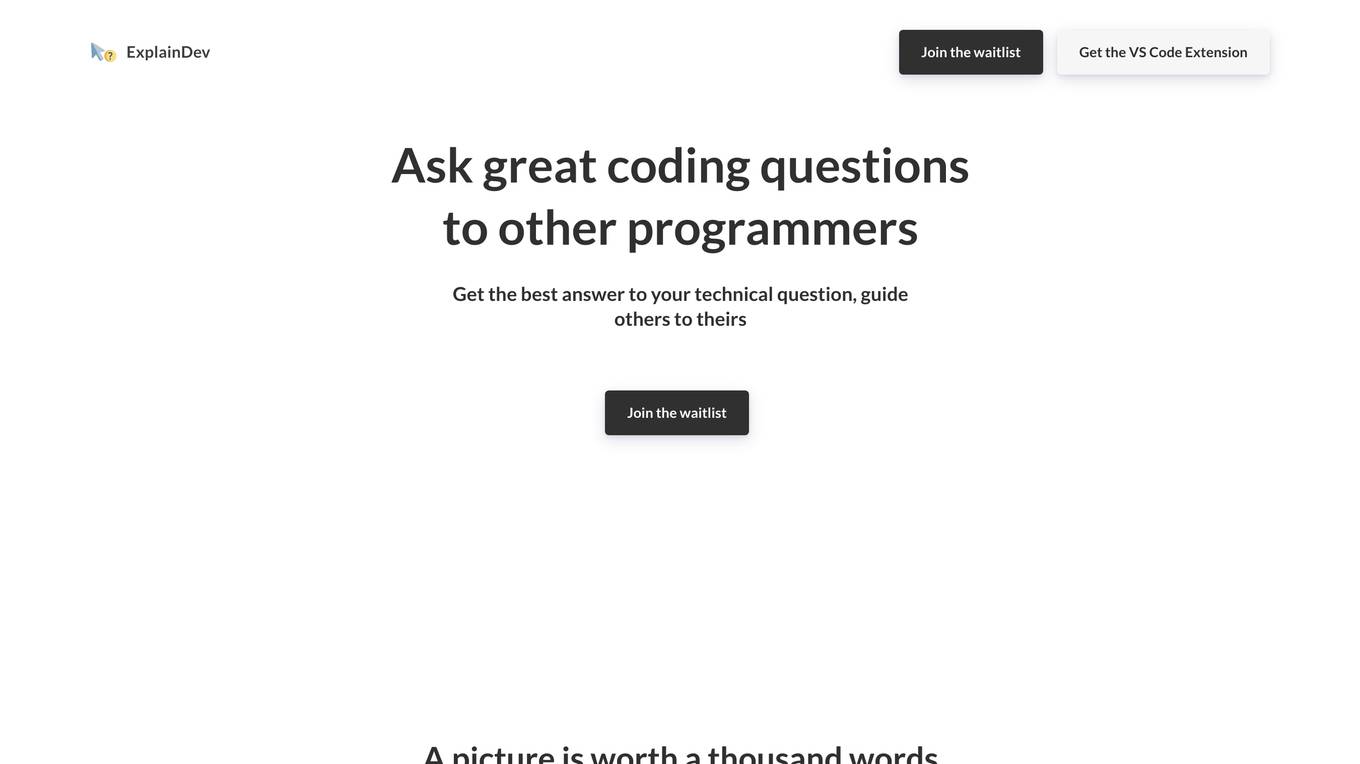
ExplainDev
ExplainDev is a platform that allows users to ask and answer technical coding questions. It uses computer vision to retrieve technical context from images or videos. The platform is designed to help developers get the best answers to their technical questions and guide others to theirs.
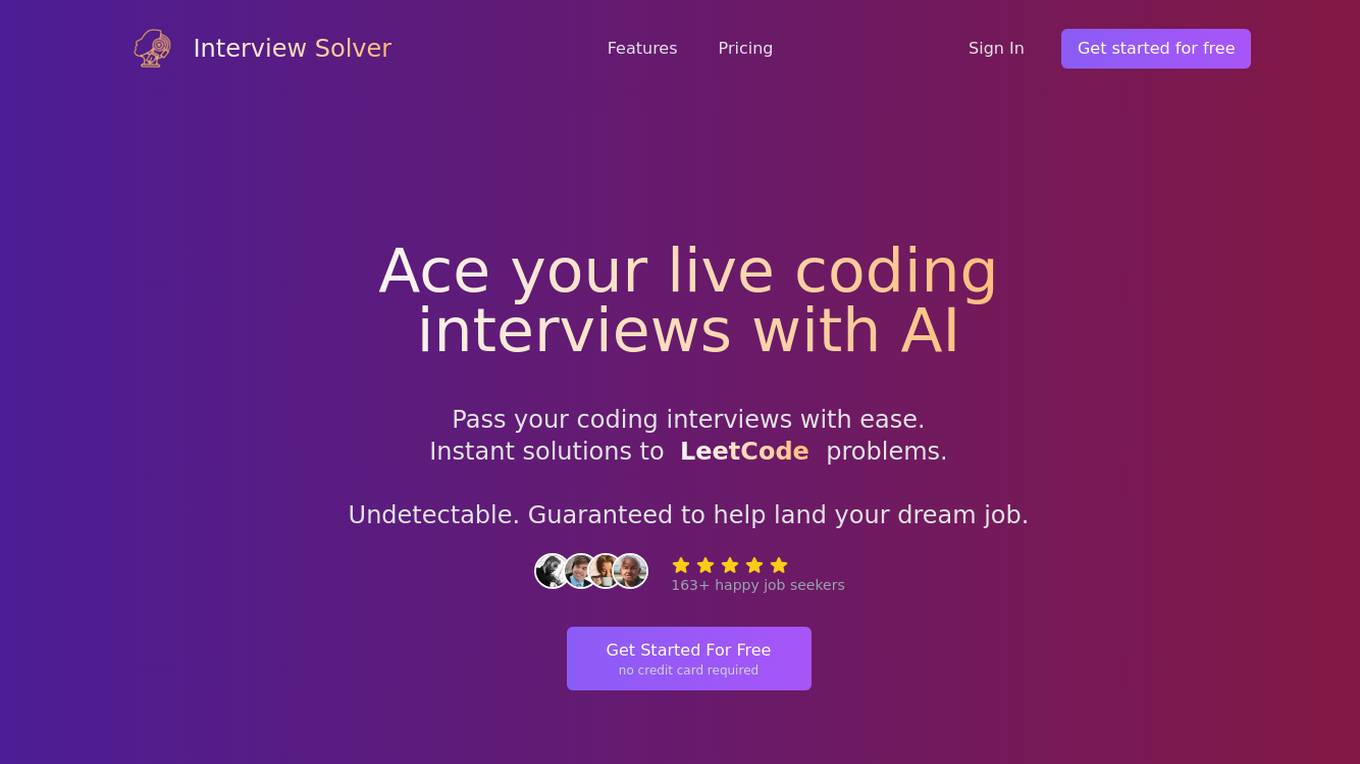
Interview Solver
Interview Solver is a desktop application that acts as your copilot during coding interviews, providing instant solutions to LeetCode problems and system design questions. It features screengrabbing capabilities, one-shot solutions, query selected text functionality, global hotkeys, and syntax highlighting for all major languages. Interview Solver is designed to give you an AI advantage during live interviews, helping you land your dream job.
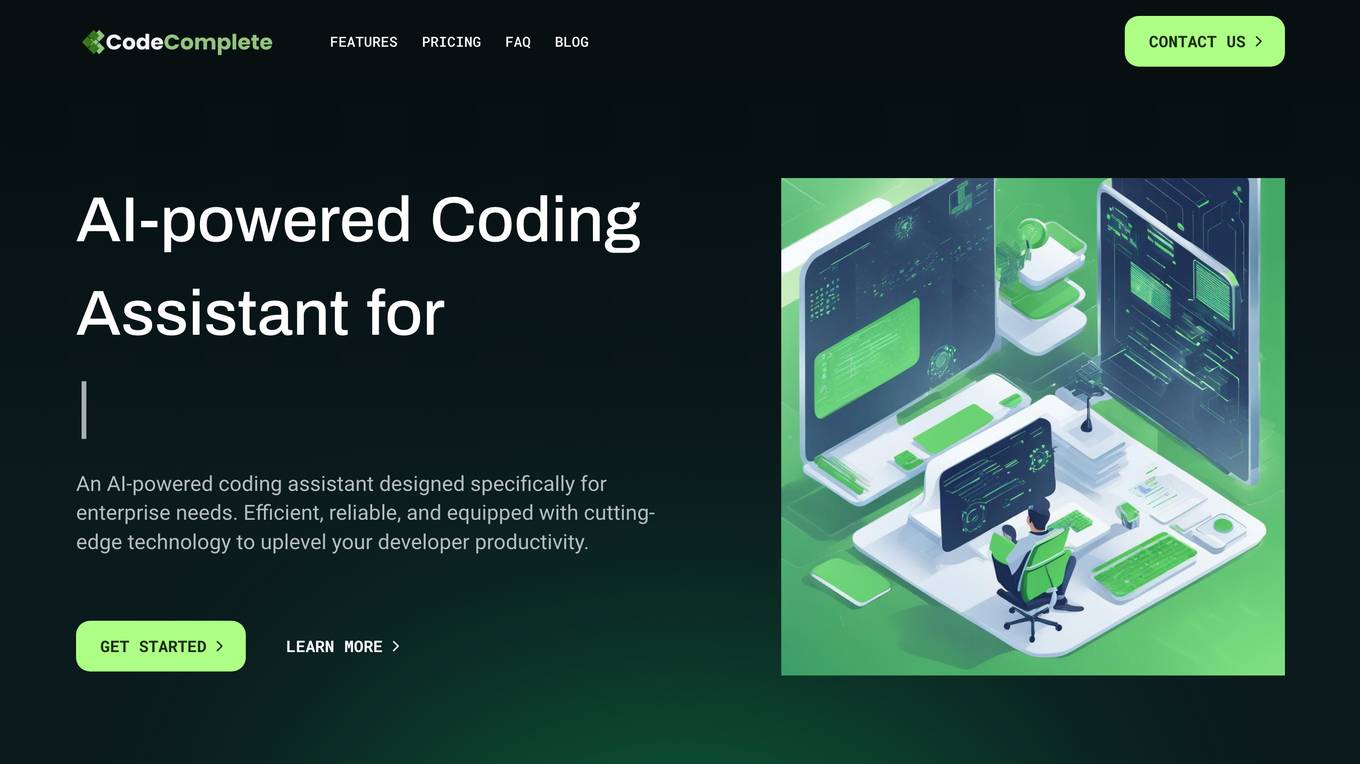
CodeComplete
CodeComplete is an AI-powered coding assistant designed specifically for enterprise needs. It is efficient, reliable, and equipped with cutting-edge technology to improve developer productivity. CodeComplete offers a comprehensive suite of coding tools to improve end-to-end developer workflow, including code generation, code chat, automated unit test generation, automated documentation, and refactoring & migrations.
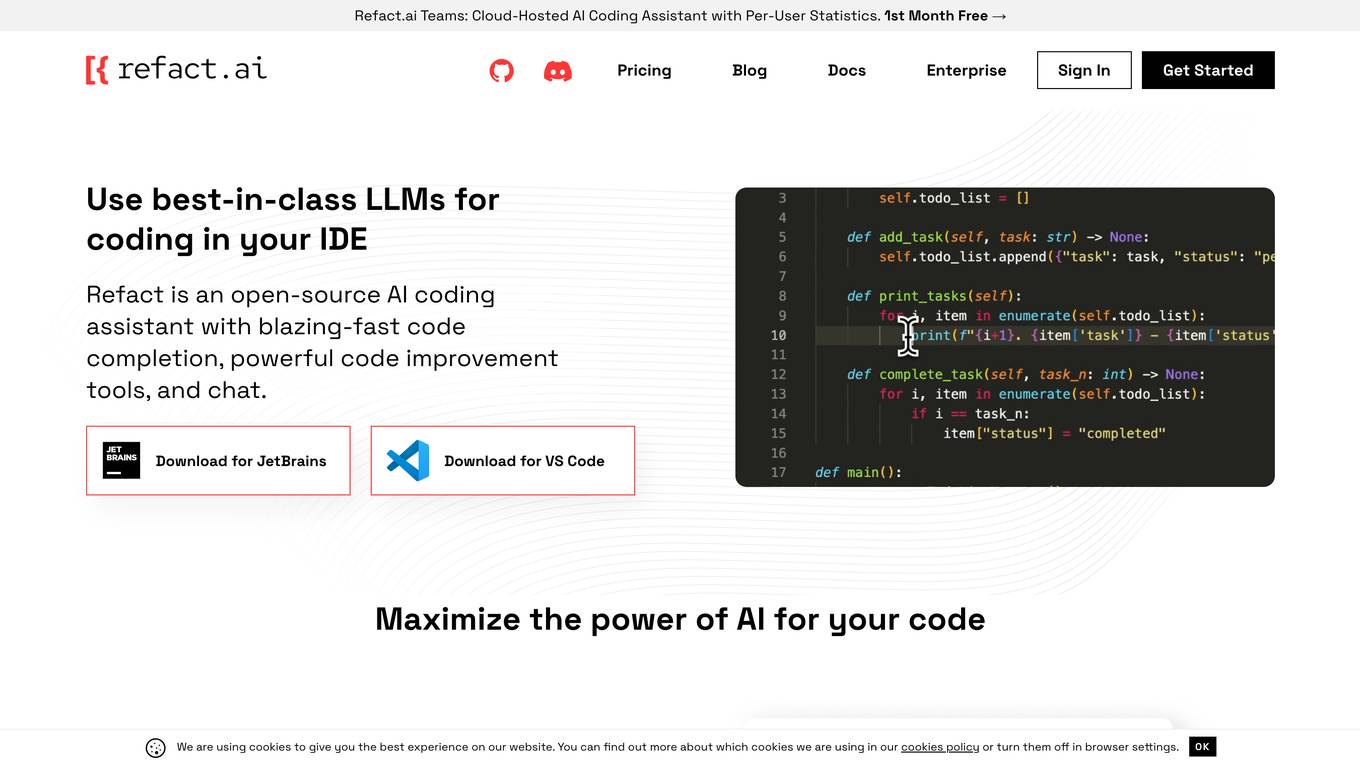
Refact.ai
Refact.ai is an open-source AI coding assistant that offers a range of features including code completion, refactoring, and chat. It supports various LLMs such as GPT-4 and Code LLama, allowing users to choose the model that best suits their needs. Refact understands the context of the codebase using a fill-in-the-middle technique, providing relevant suggestions. Users can opt for a self-hosted version or adjust privacy settings for the plugin.
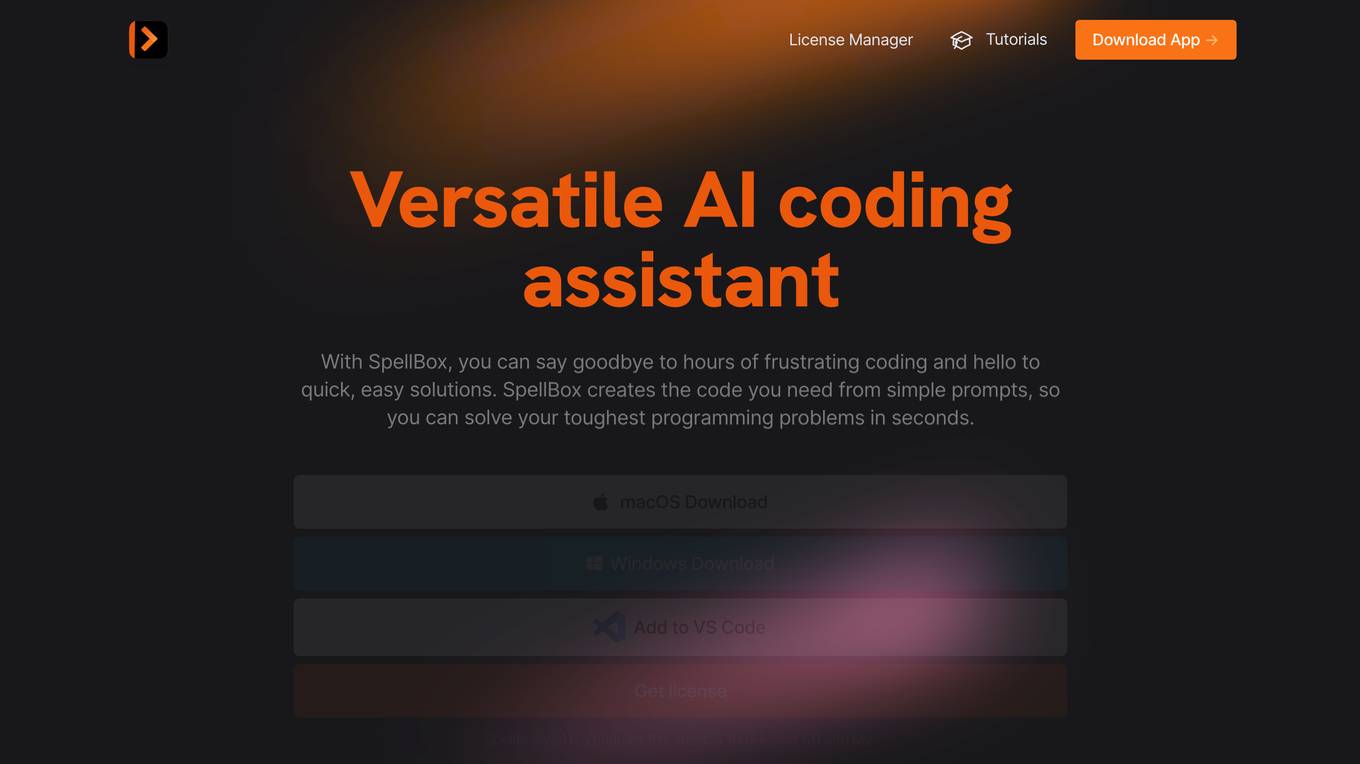
SpellBox
SpellBox is a versatile AI coding assistant that helps developers of all levels write code faster and more efficiently. With SpellBox, you can say goodbye to hours of frustrating coding and hello to quick, easy solutions. SpellBox creates the code you need from simple prompts, so you can solve your toughest programming problems in seconds.
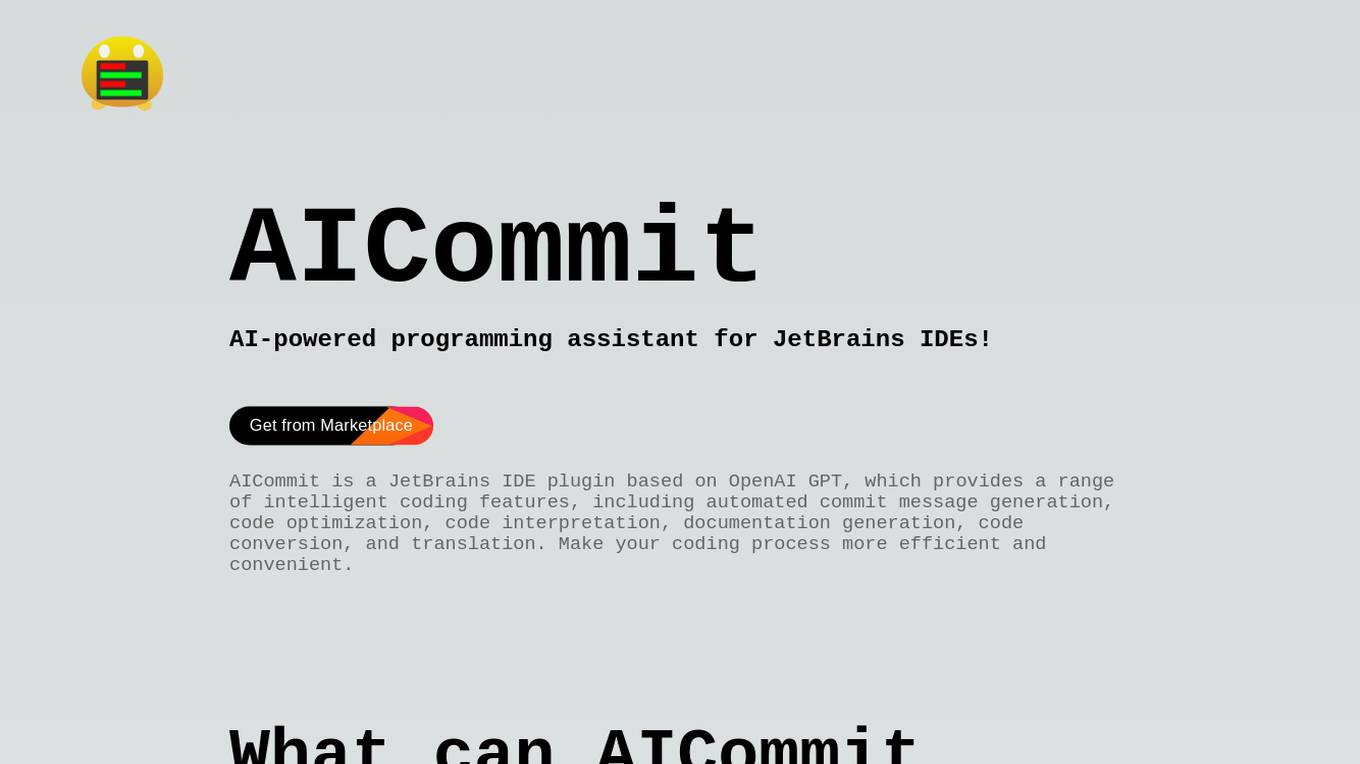
AICommit
AICommit is an AI-powered programming assistant for JetBrains IDEs. It is based on OpenAI GPT and provides a range of intelligent coding features, including automated commit message generation, code optimization, code interpretation, documentation generation, code conversion, and translation. AICommit can help you make your coding process more efficient and convenient.
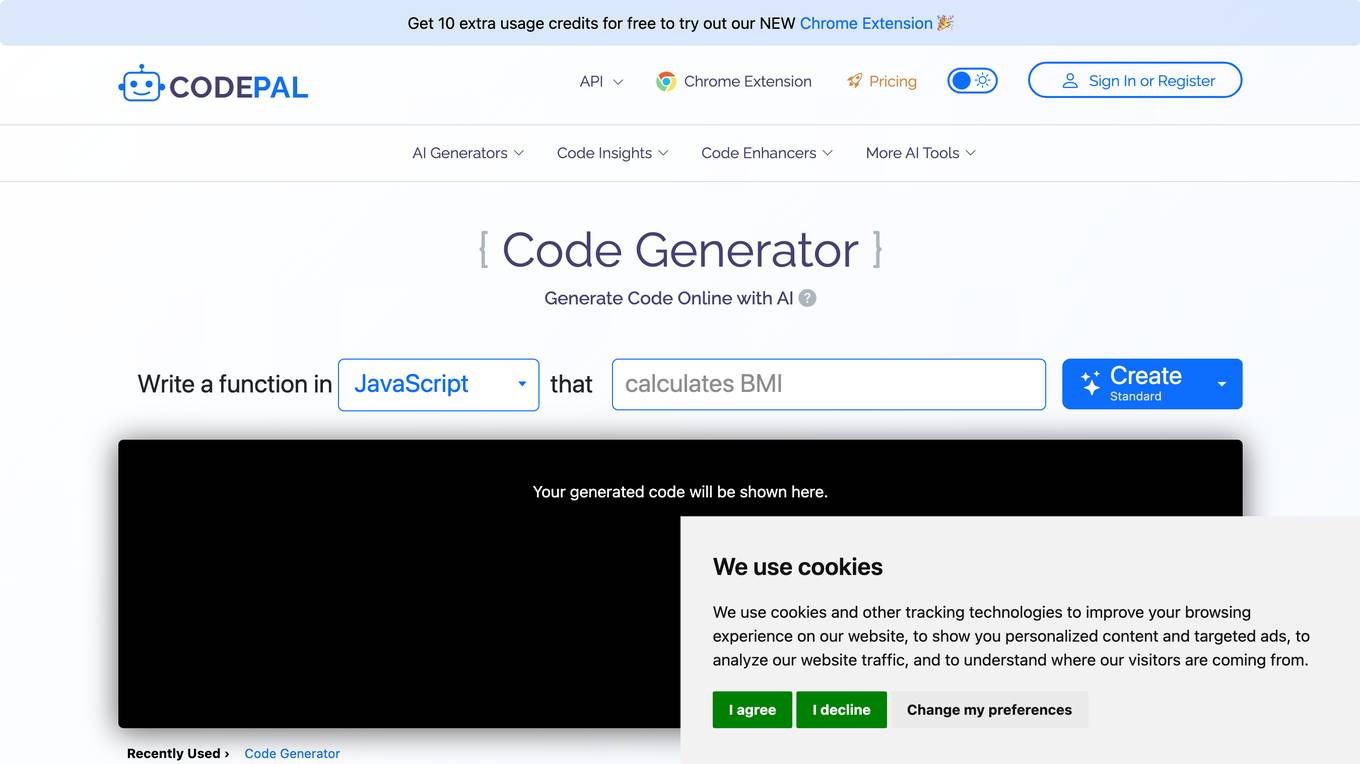
CodePal
CodePal is a comprehensive platform that offers a range of coding helpers and tools to assist developers. It includes AI-powered code generators that can translate plain words into computer code, helping users automate tasks, improve code quality, and enhance productivity. CodePal supports various programming languages and technologies, making it a versatile tool for developers of all levels.
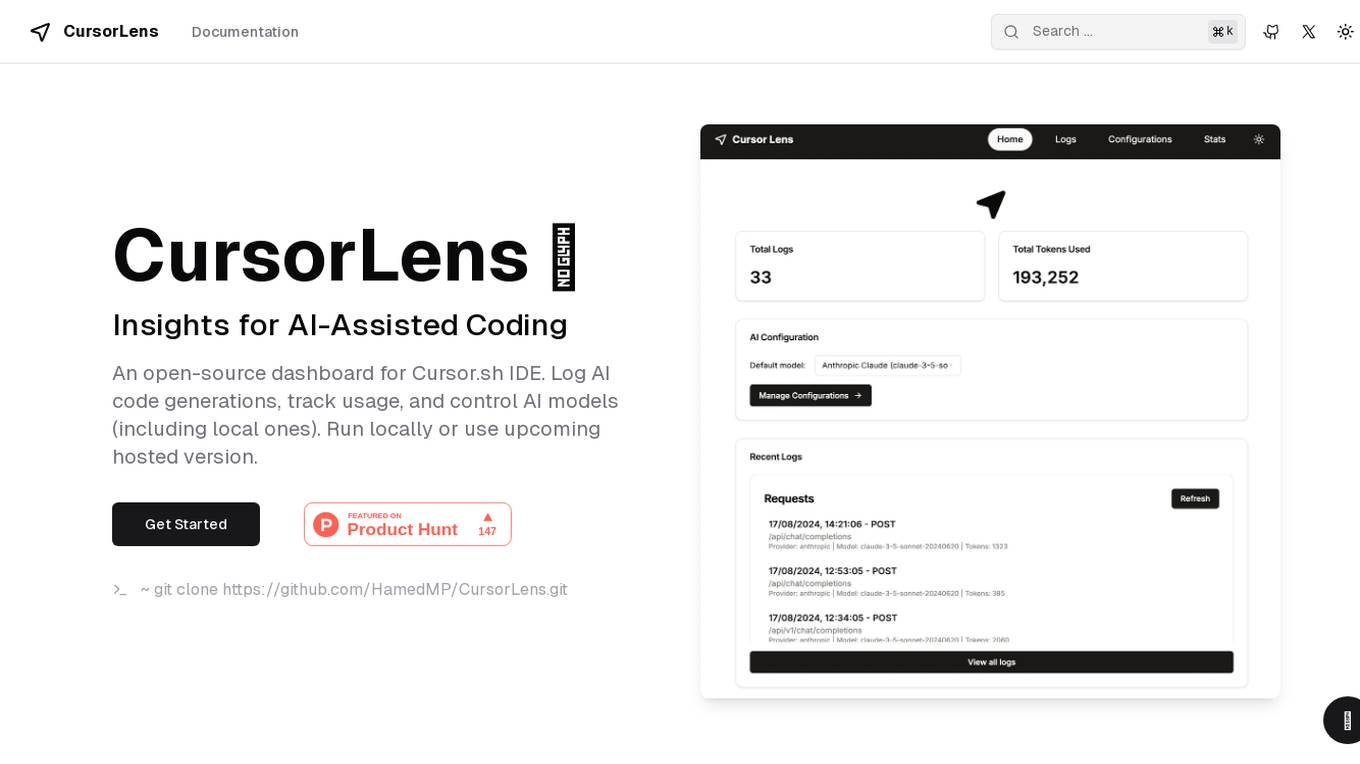
CursorLens
CursorLens is an open-source dashboard designed to provide insights for AI-assisted coding within the Cursor.sh IDE. It allows users to log AI code generations, track usage, and control AI models, including local ones. Users can run CursorLens locally or utilize the upcoming hosted version for enhanced convenience and efficiency.
0 - Open Source AI Tools
20 - OpenAI Gpts
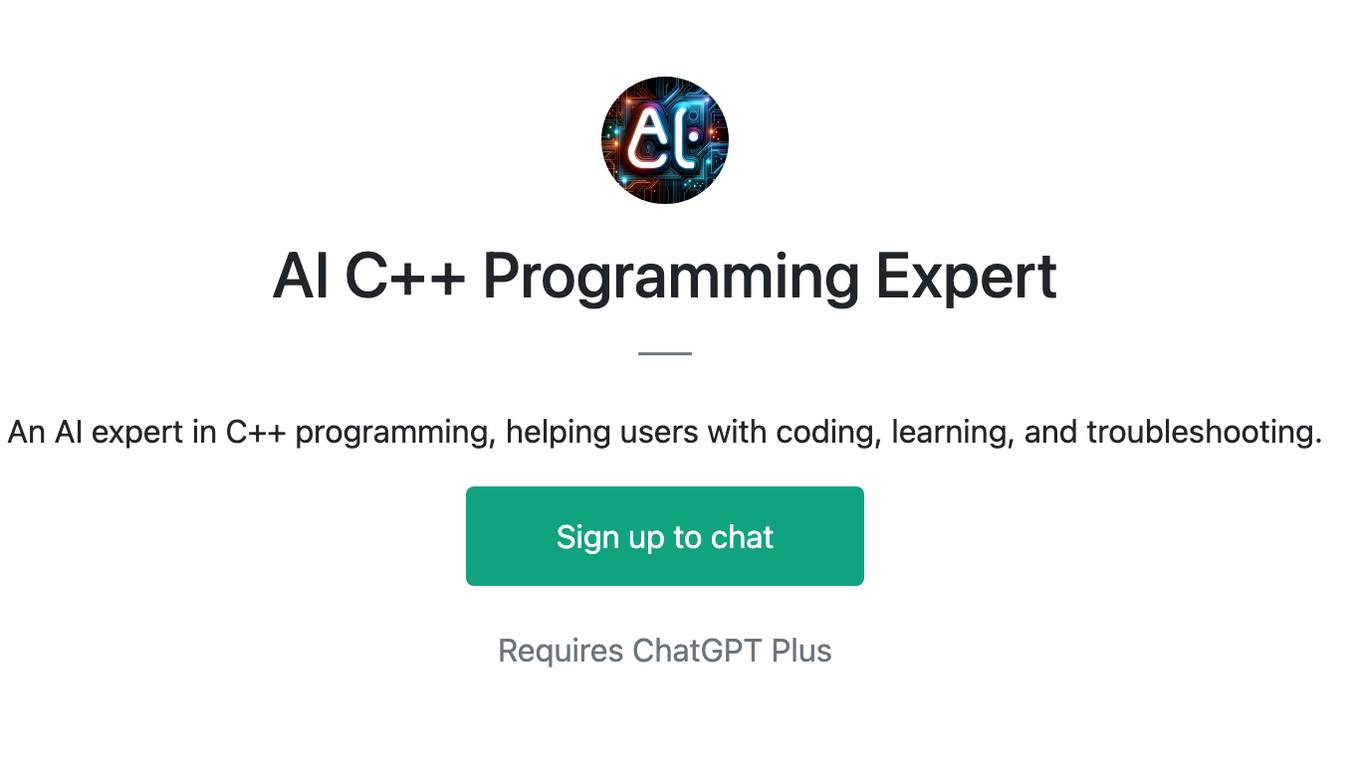
AI C++ Programming Expert
An AI expert in C++ programming, helping users with coding, learning, and troubleshooting.
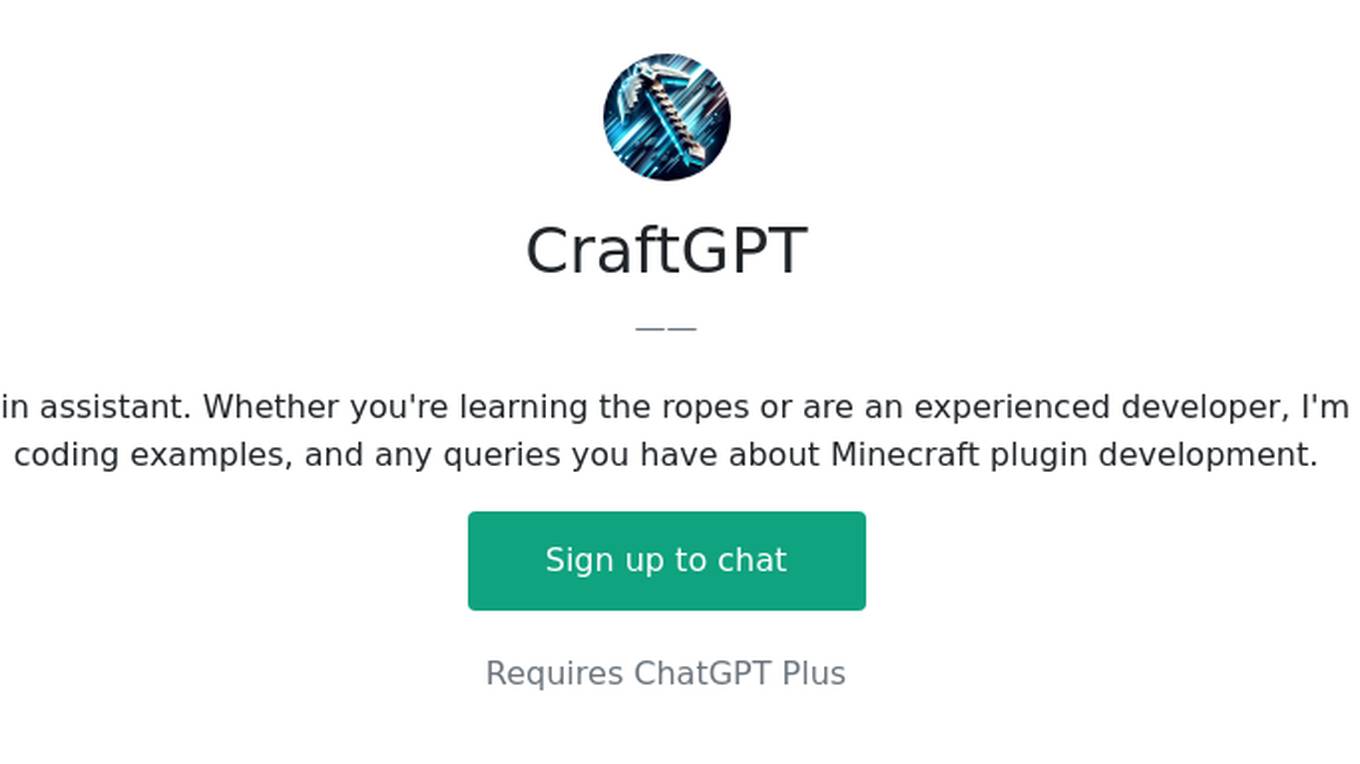
CraftGPT
Your expert Minecraft server Java plugin assistant. Whether you're learning the ropes or are an experienced developer, I'm here to help you with Java concepts, coding examples, and any queries you have about Minecraft plugin development.
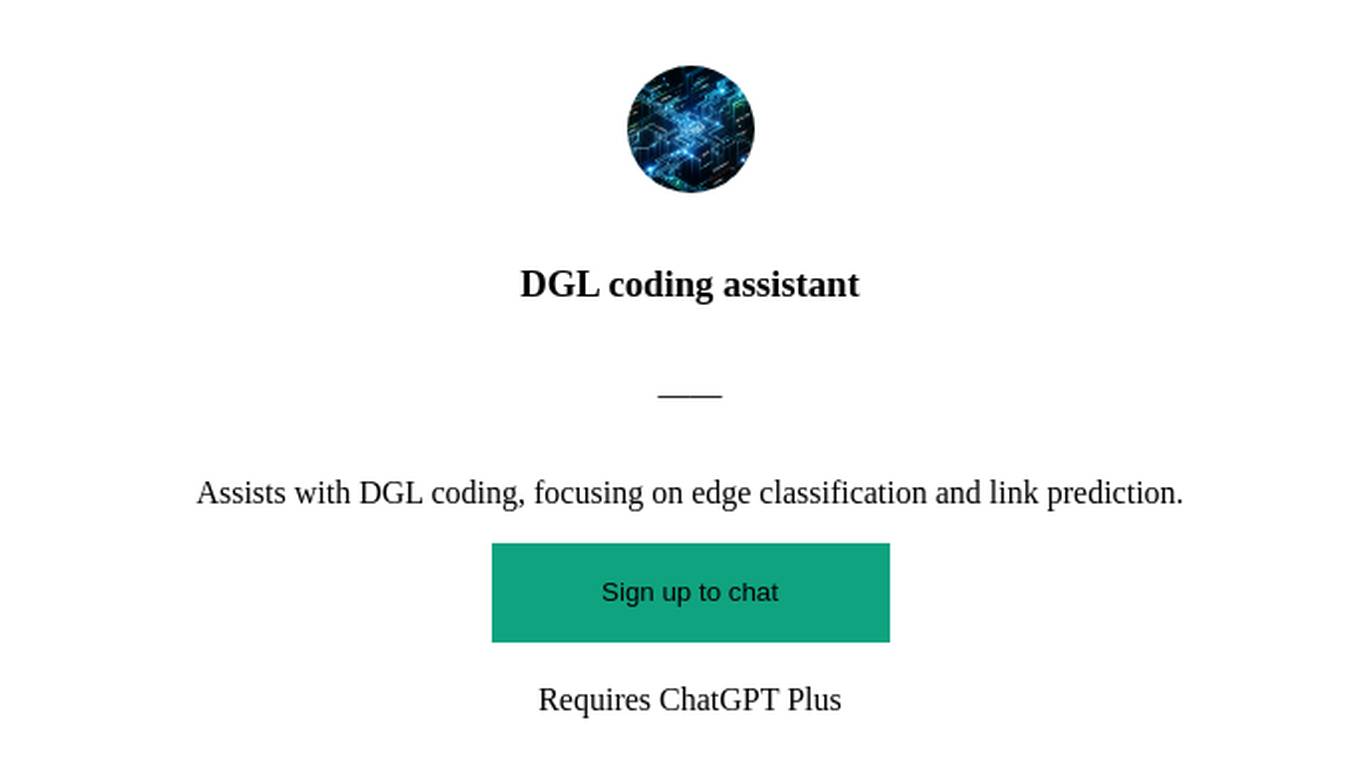
DGL coding assistant
Assists with DGL coding, focusing on edge classification and link prediction.
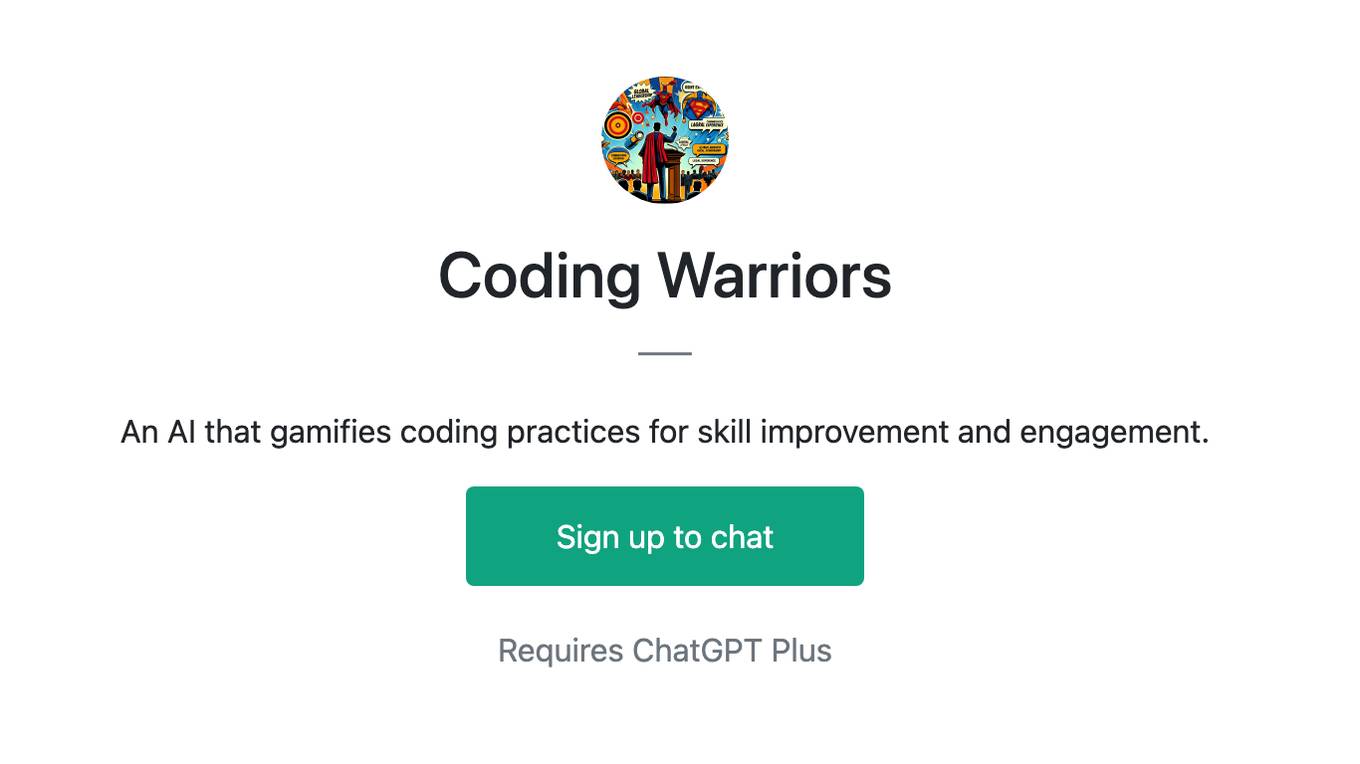
Coding Warriors
An AI that gamifies coding practices for skill improvement and engagement.

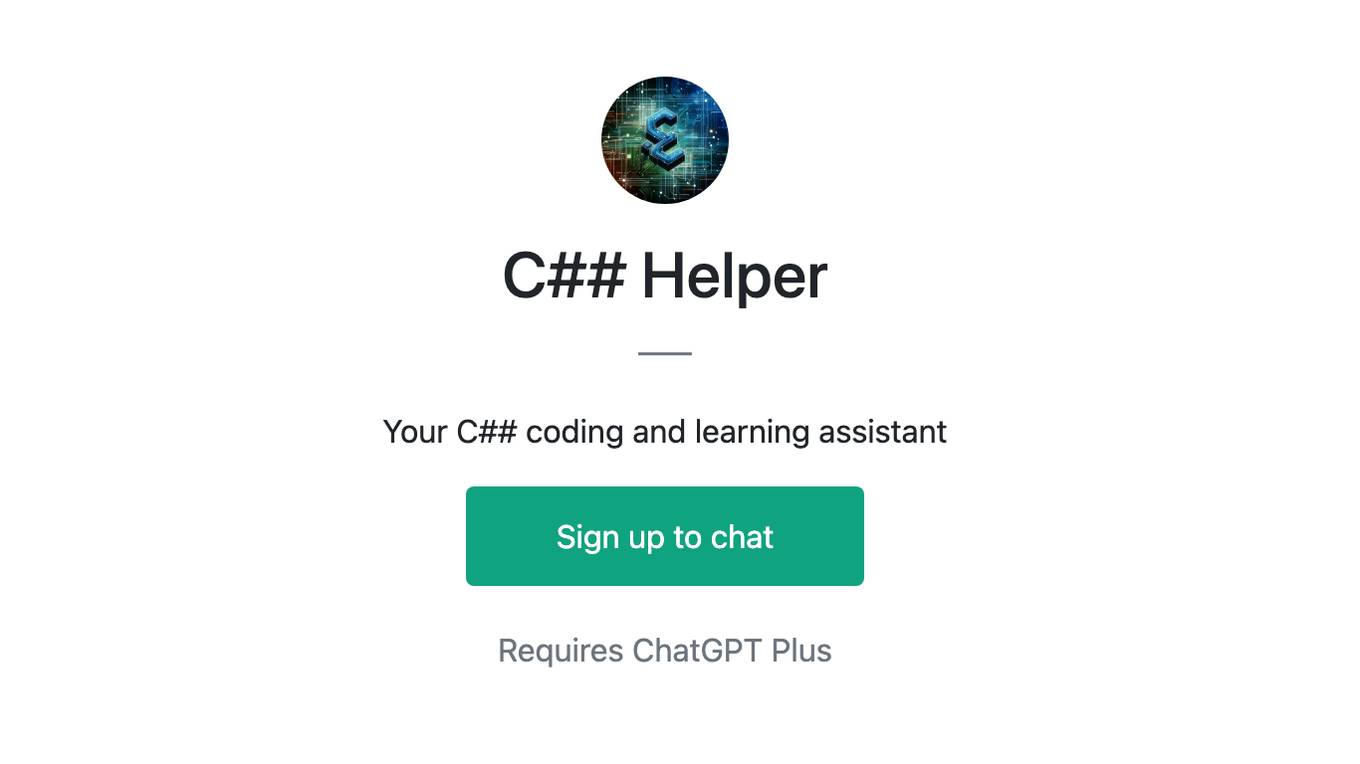
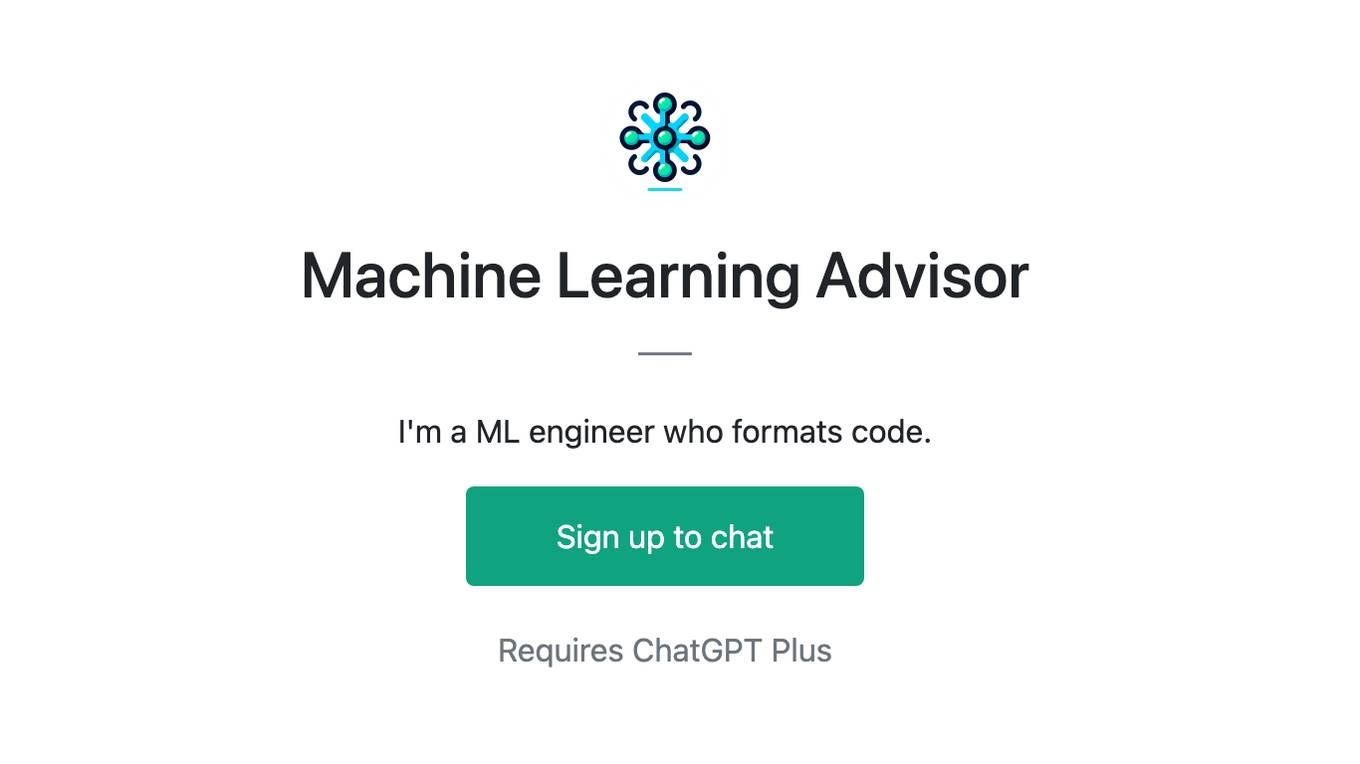
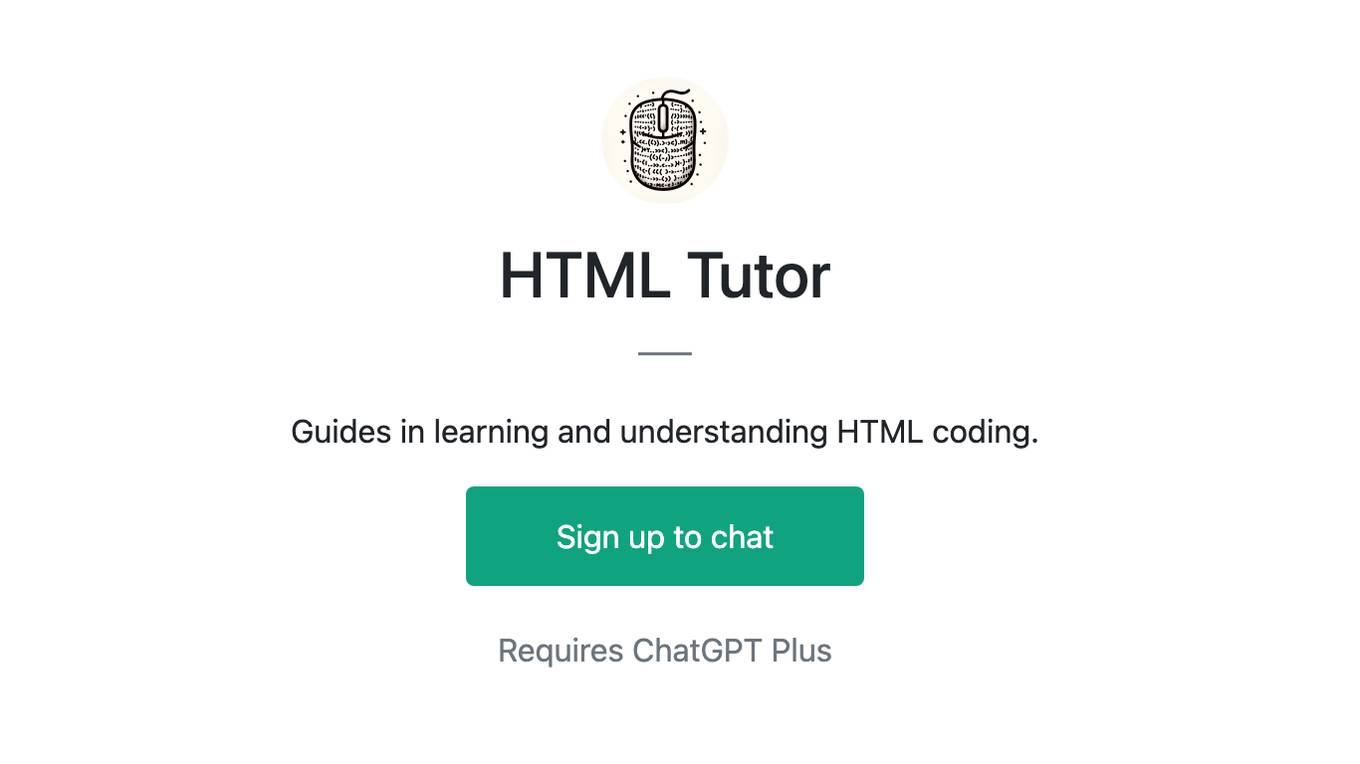
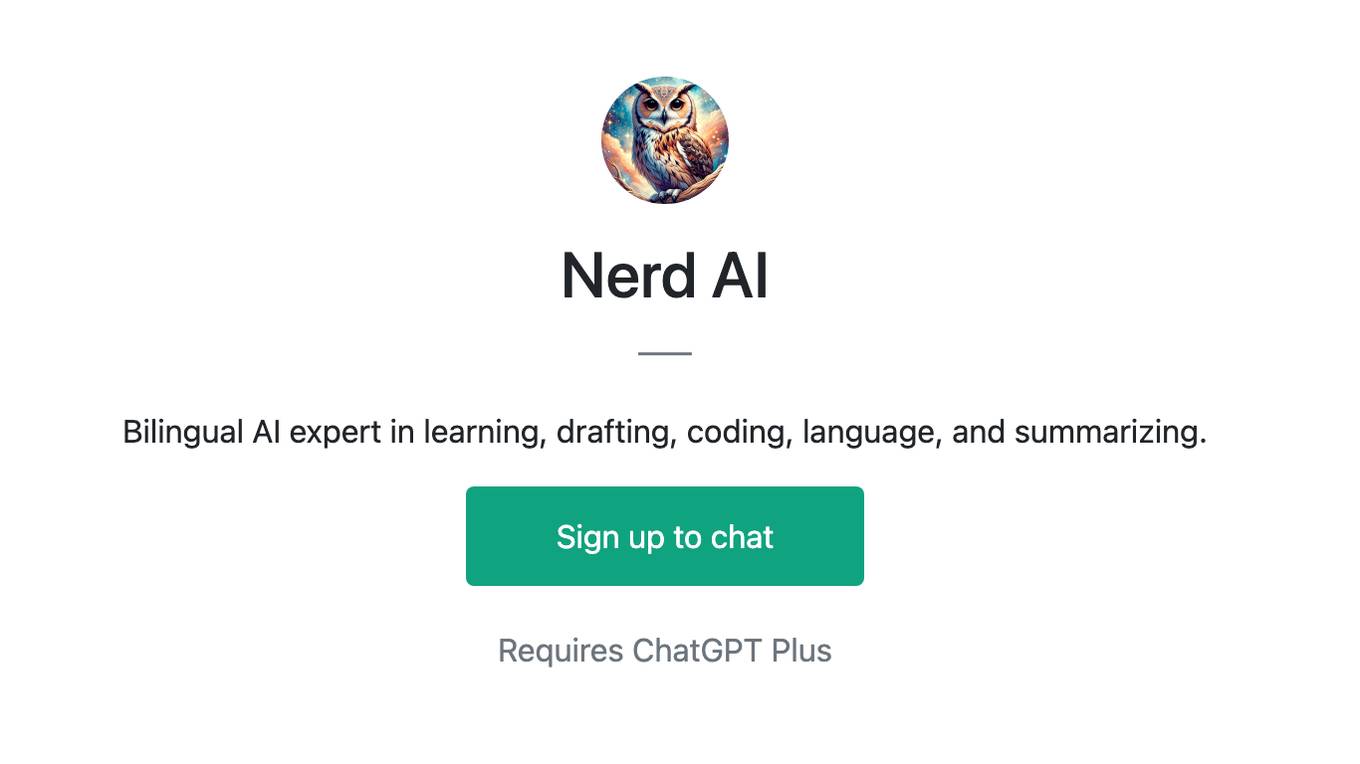
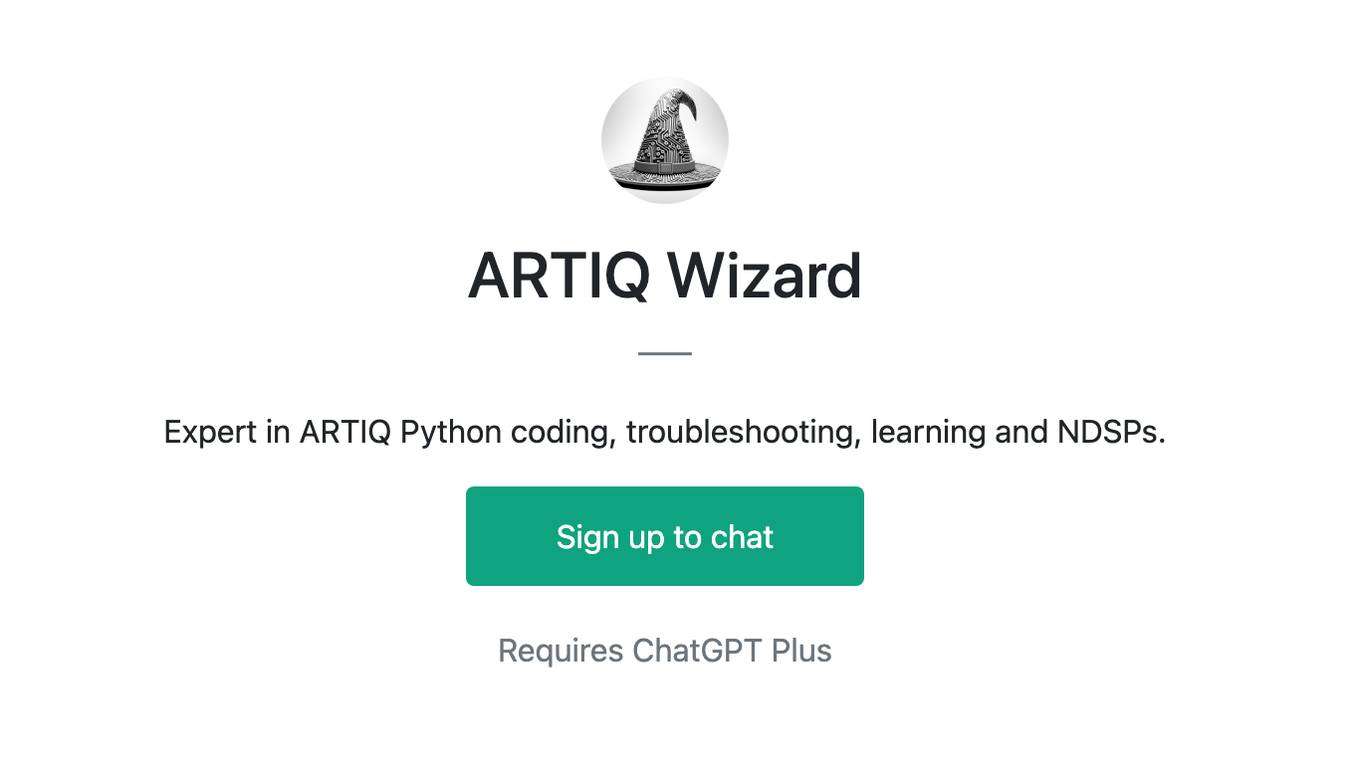
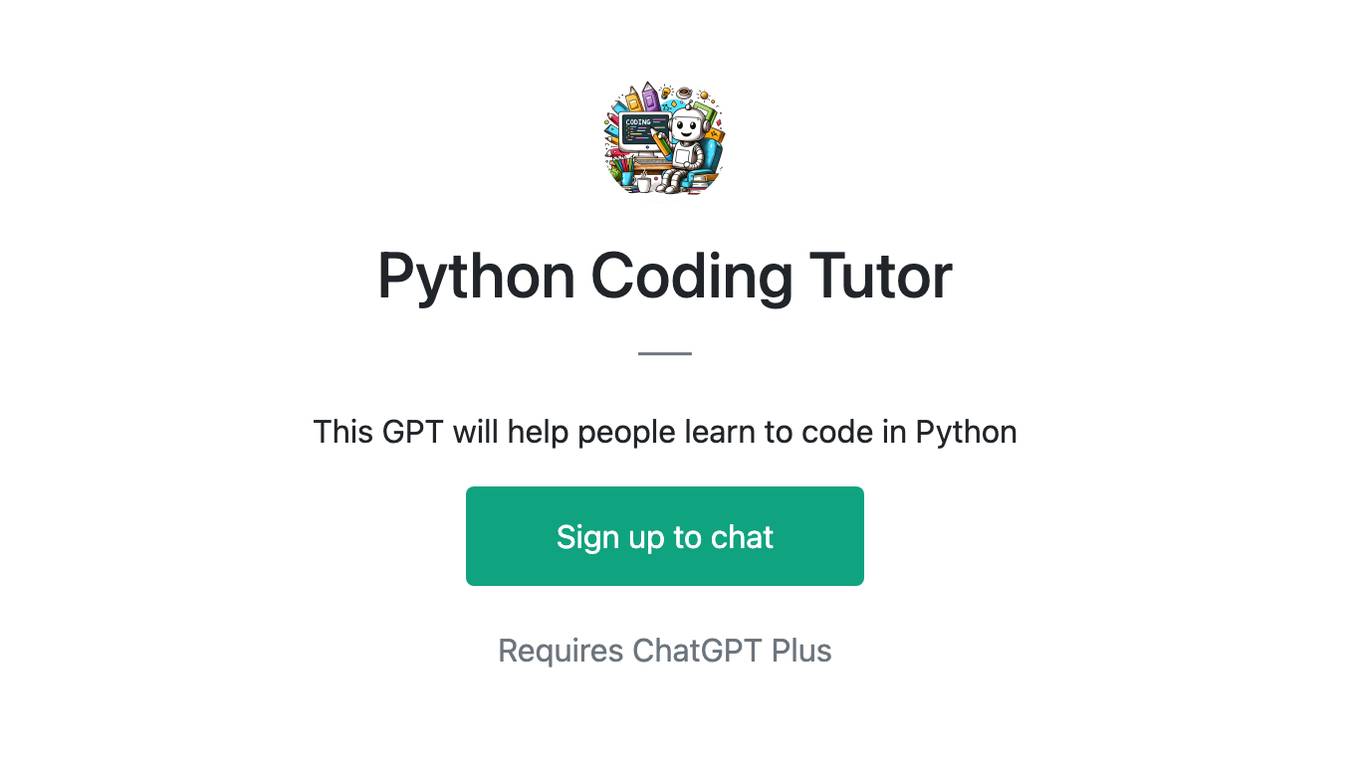
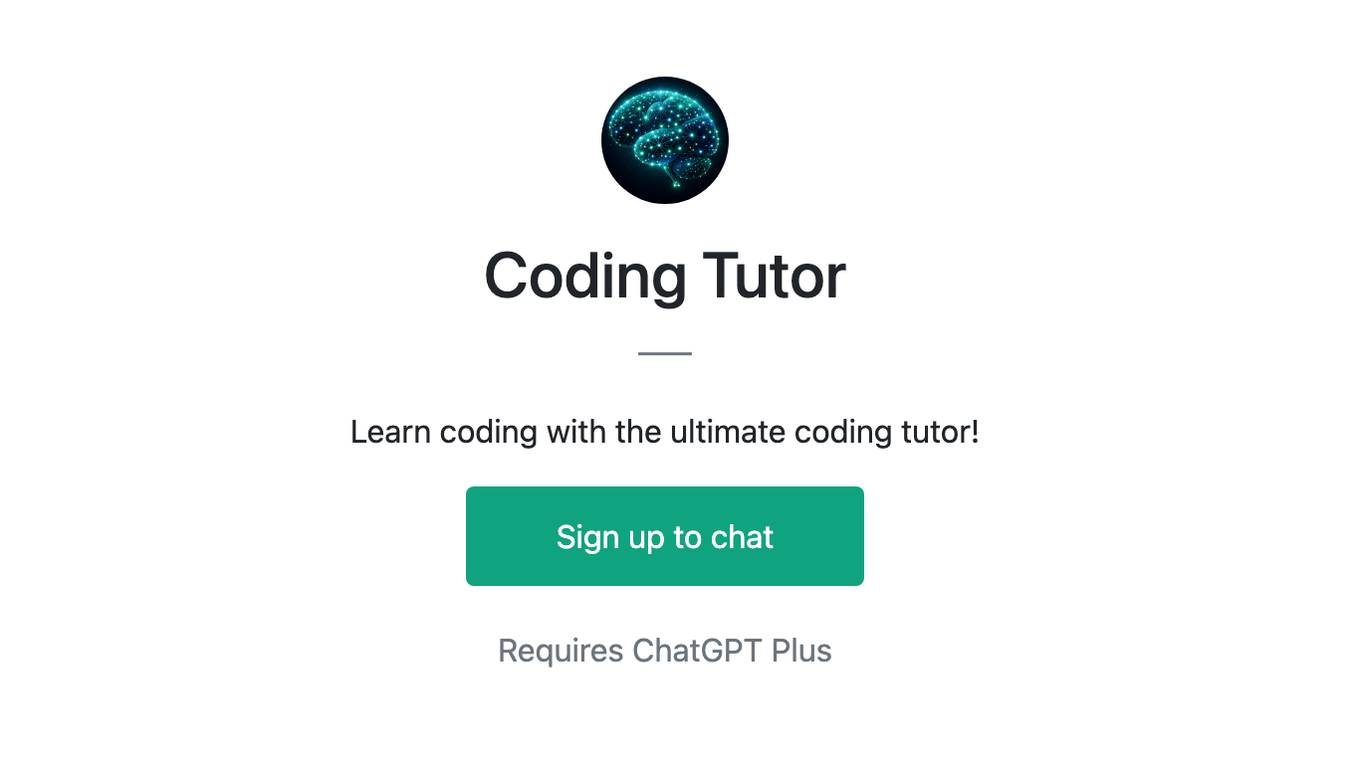
![Procedural Coding GPT [Public Release] Screenshot](/screenshots_gpts/g-XW4OQ6pbd.jpg)

